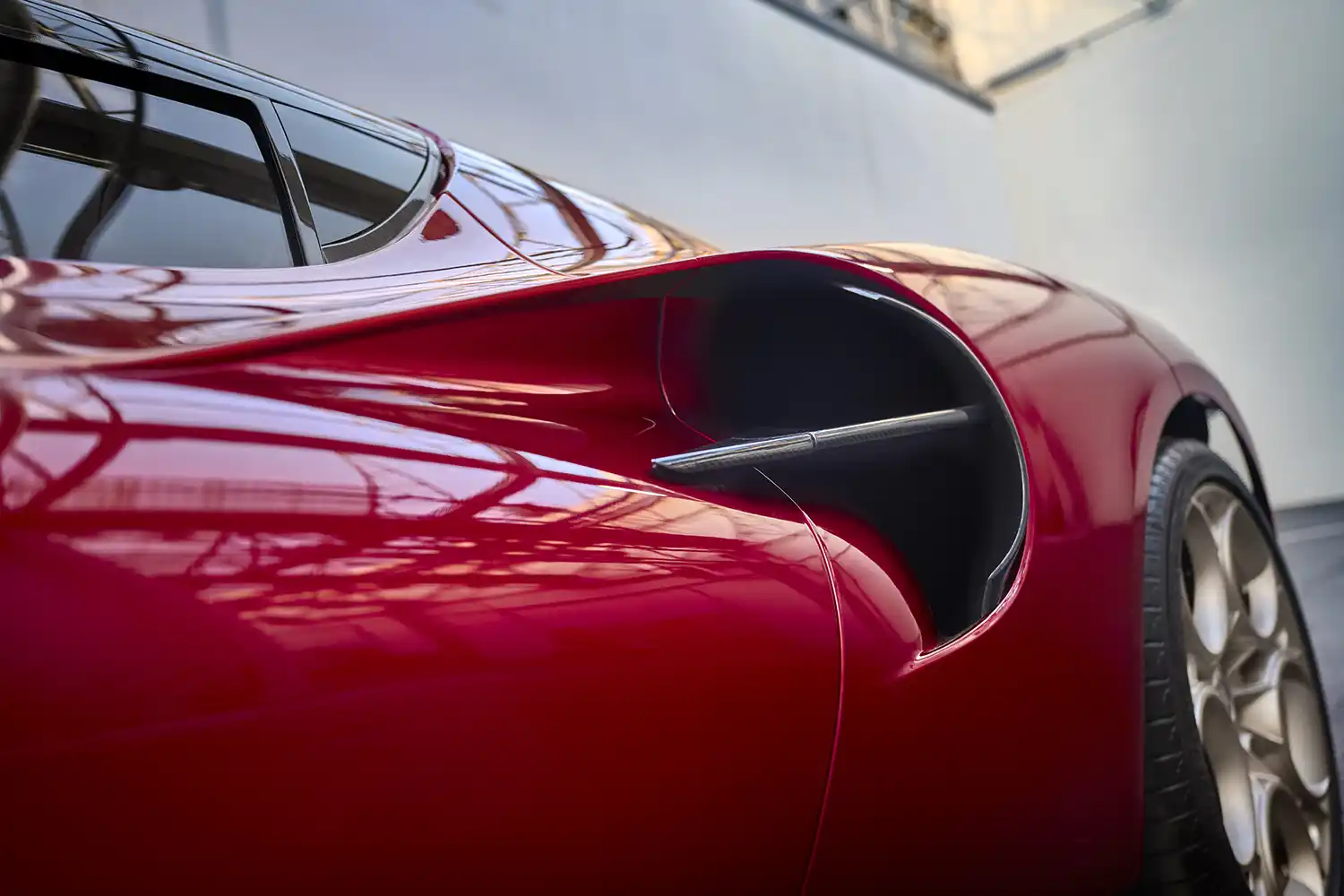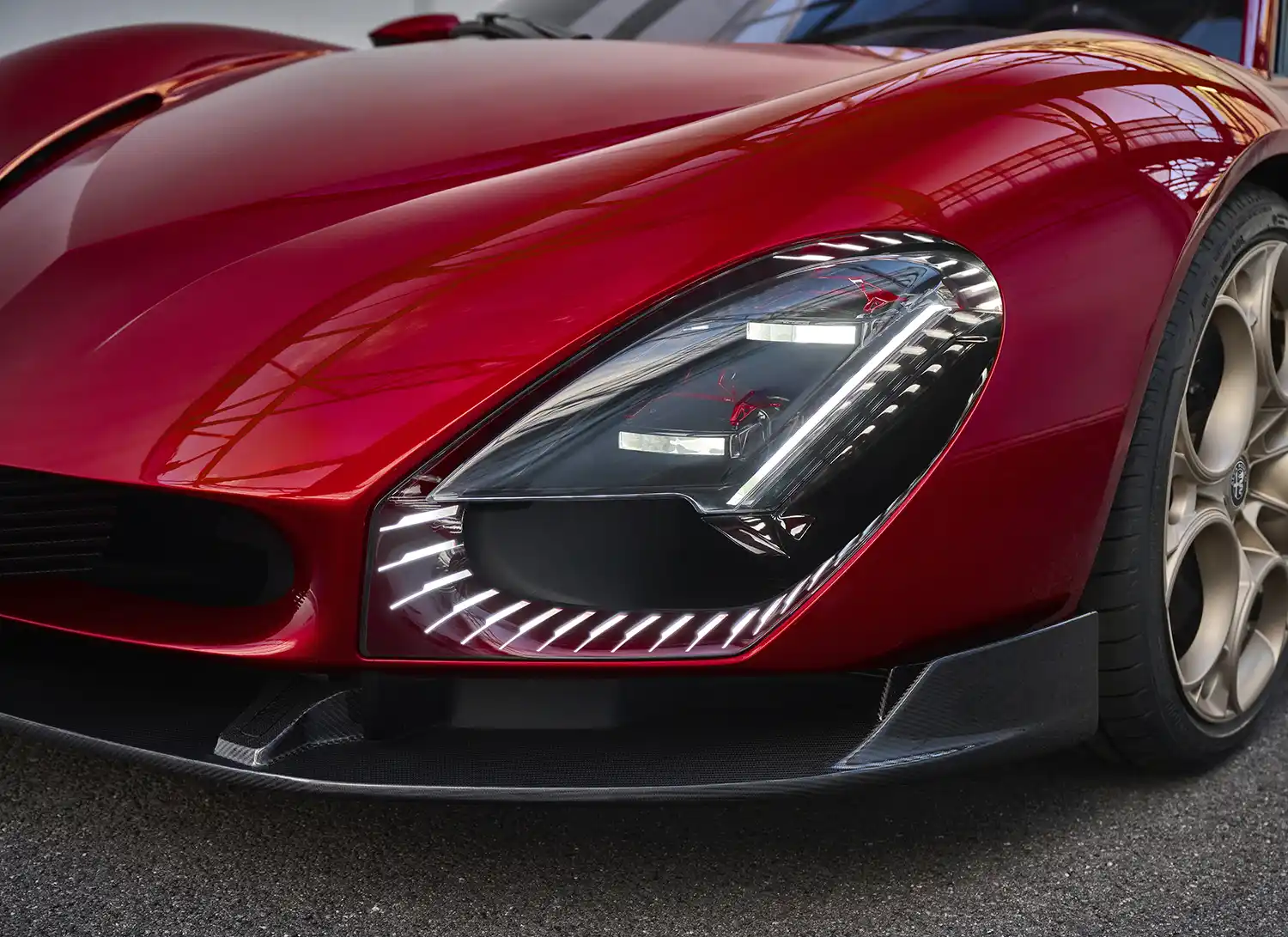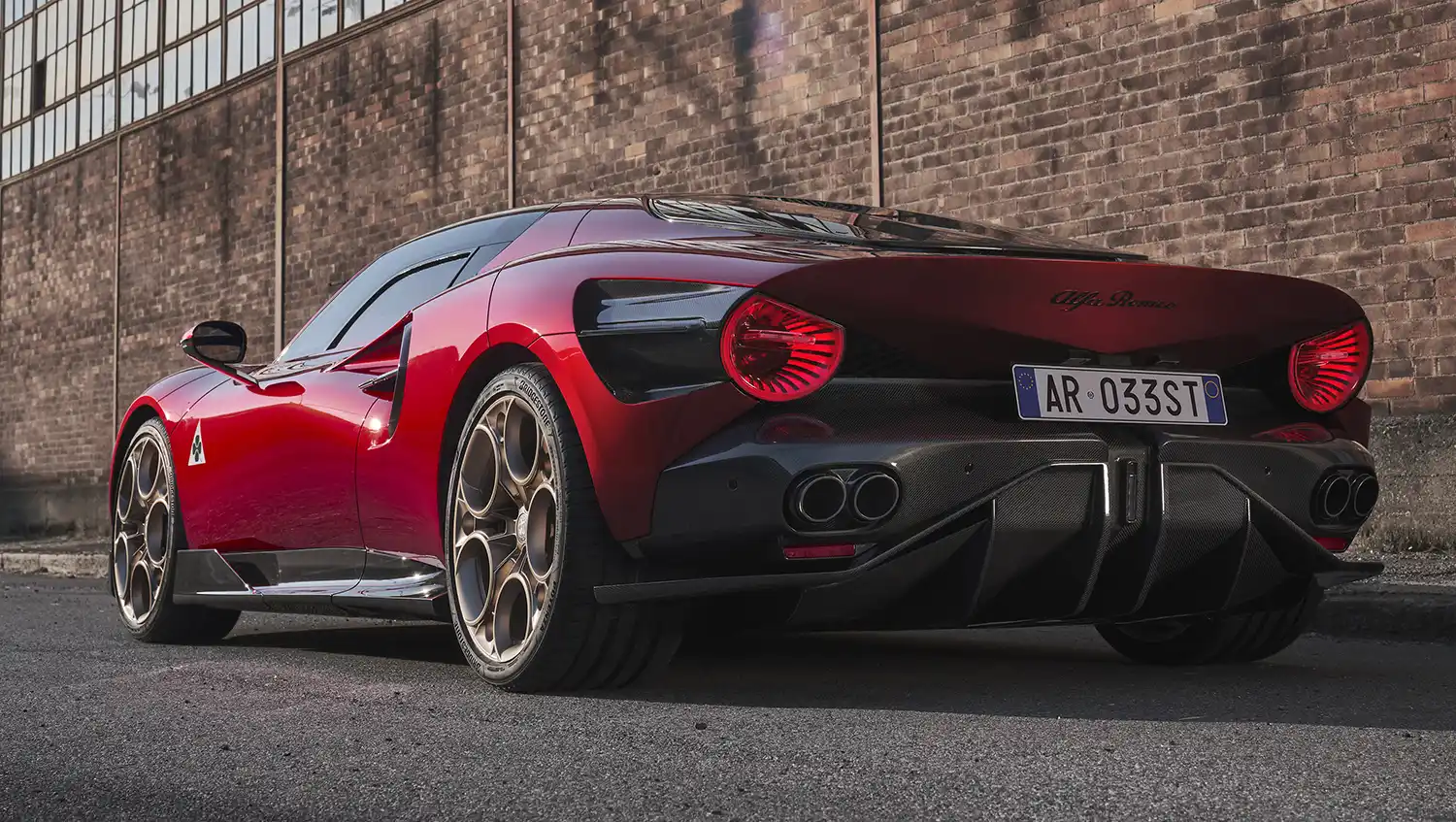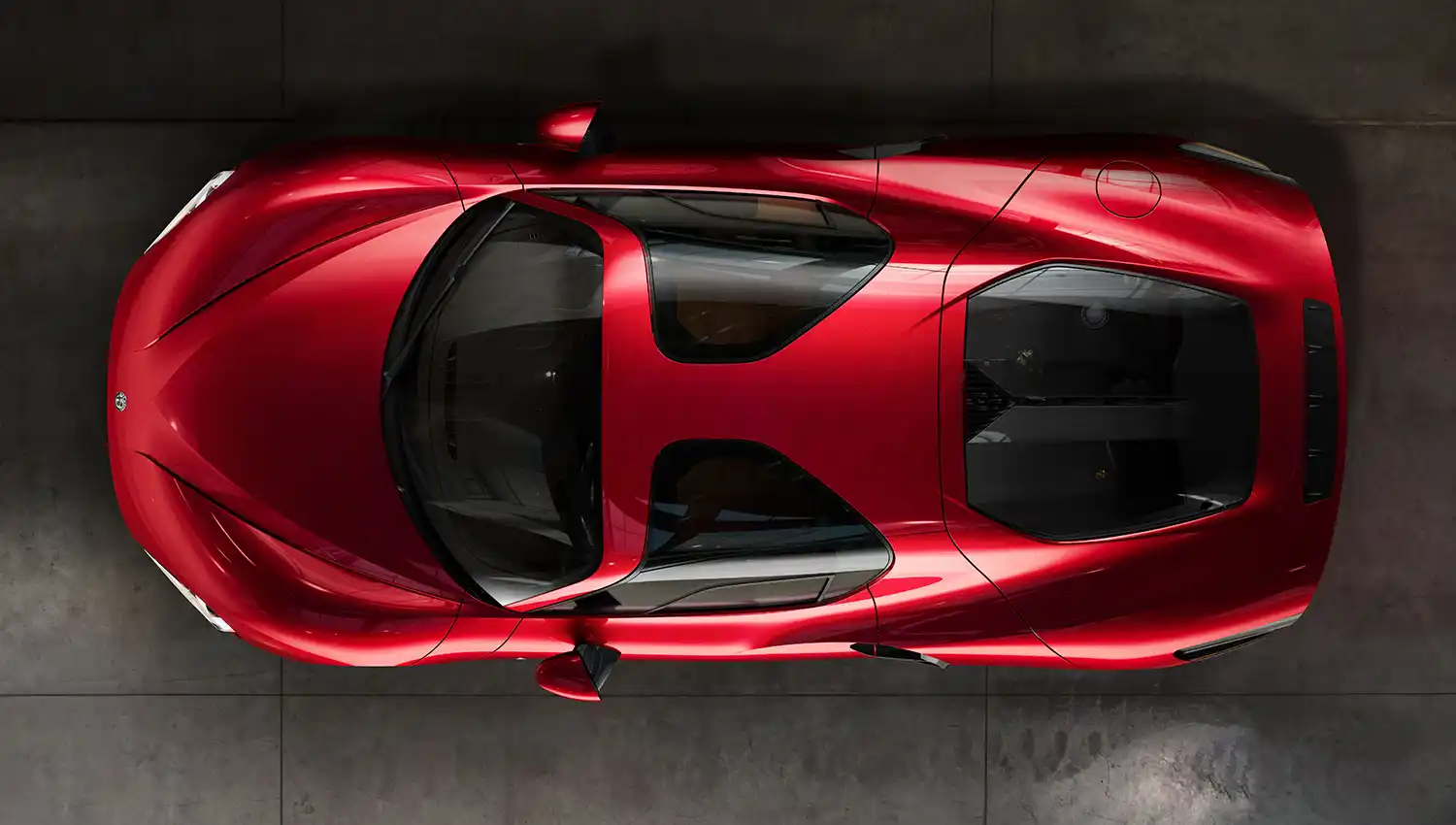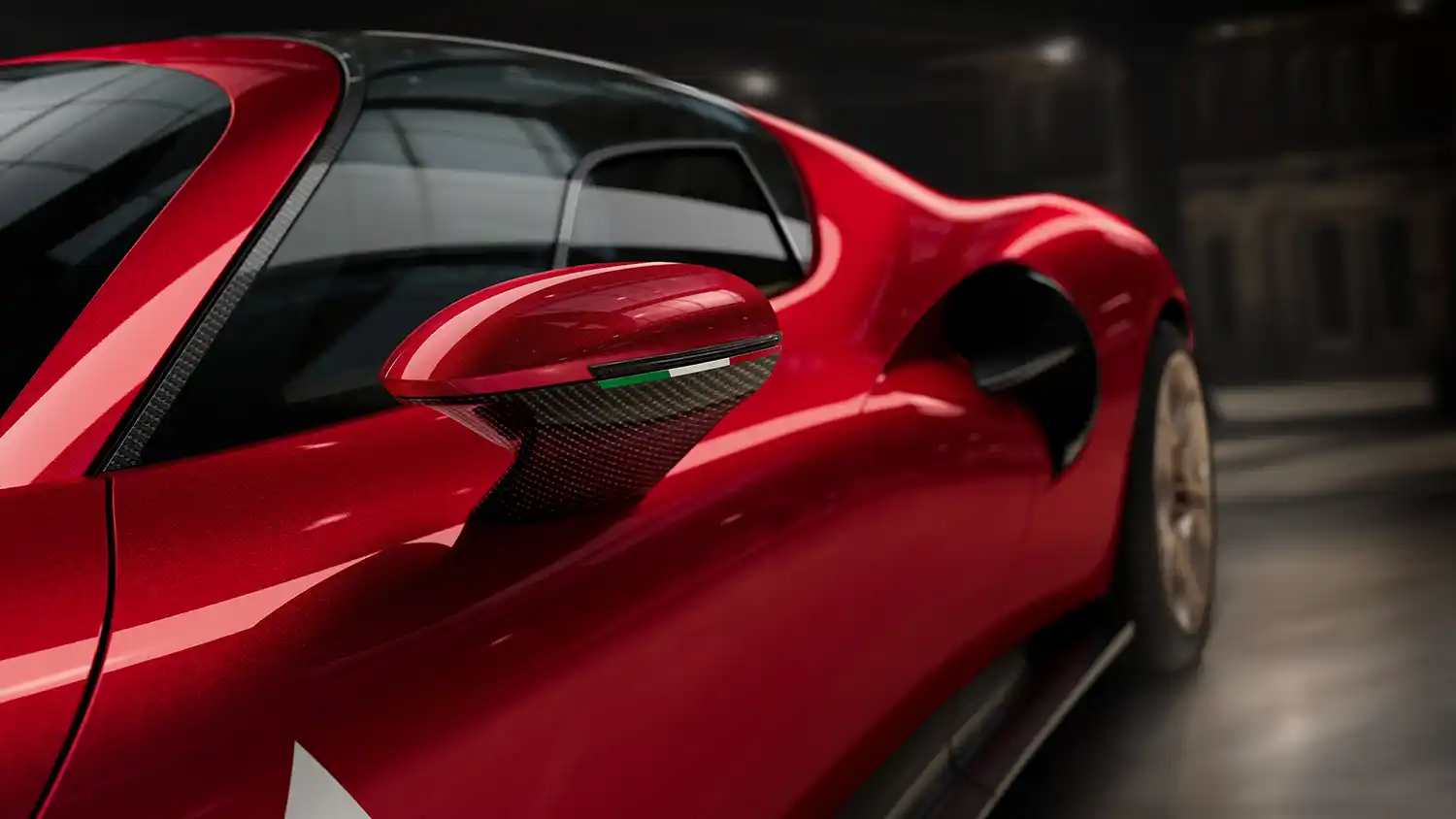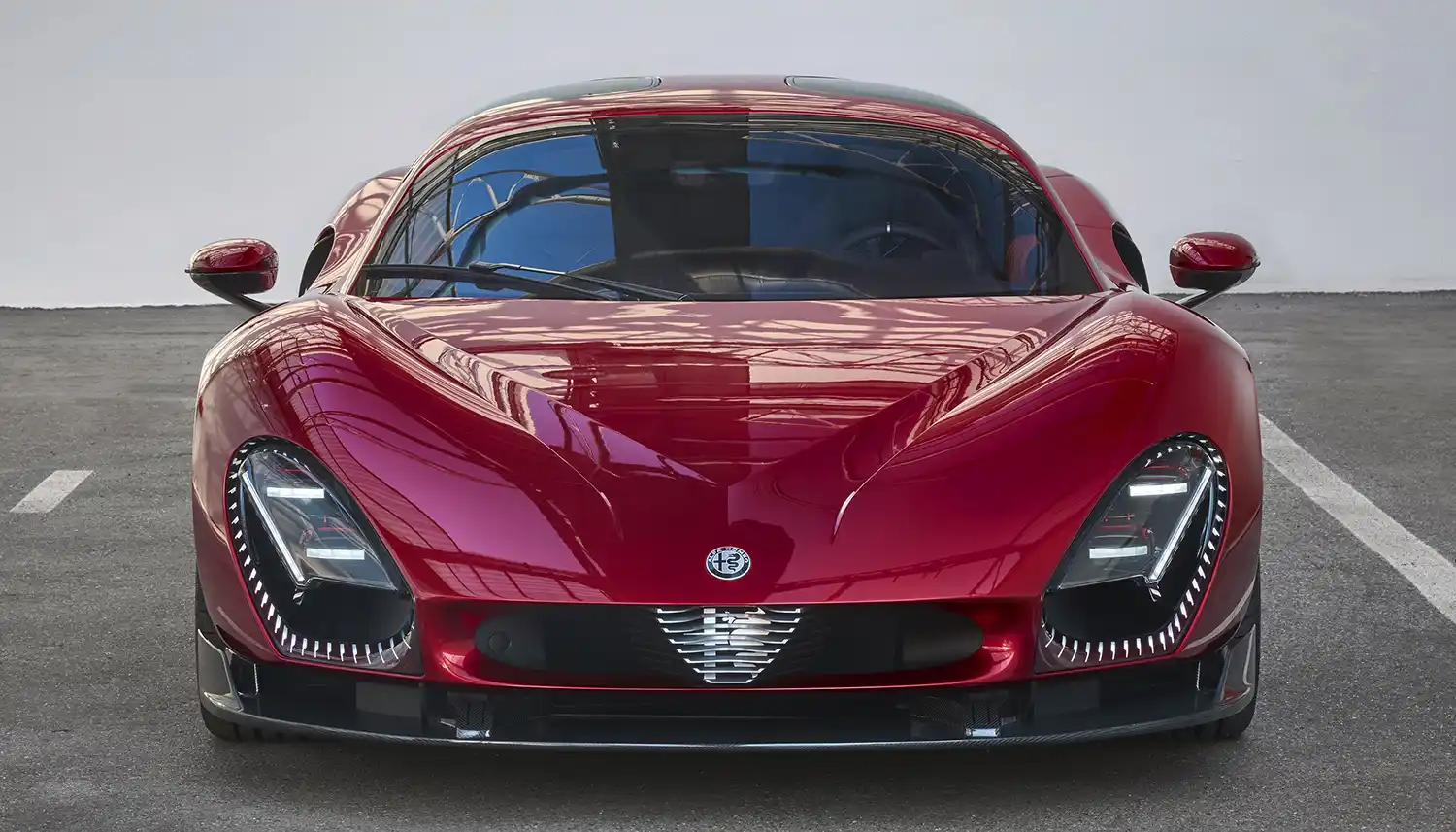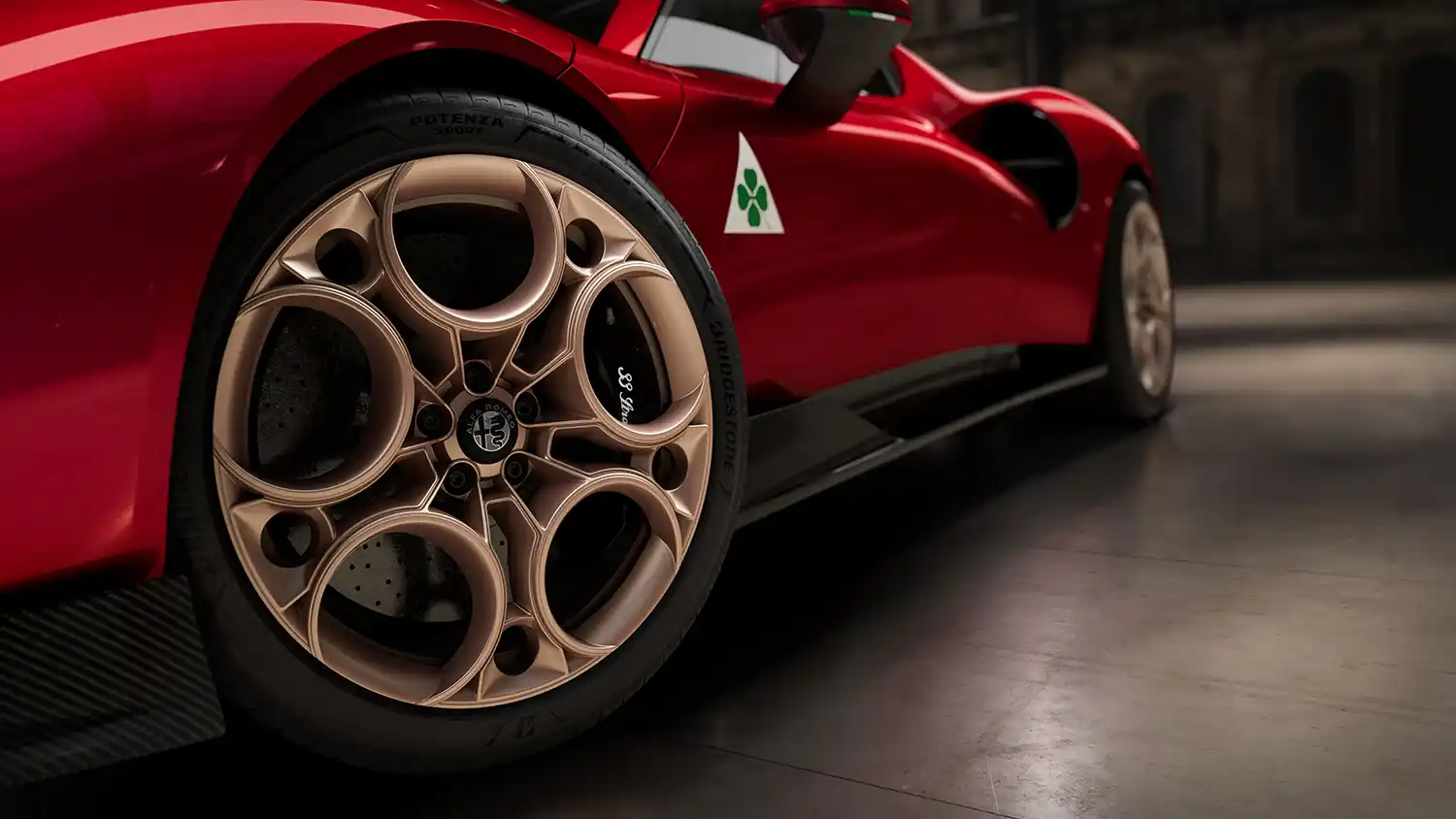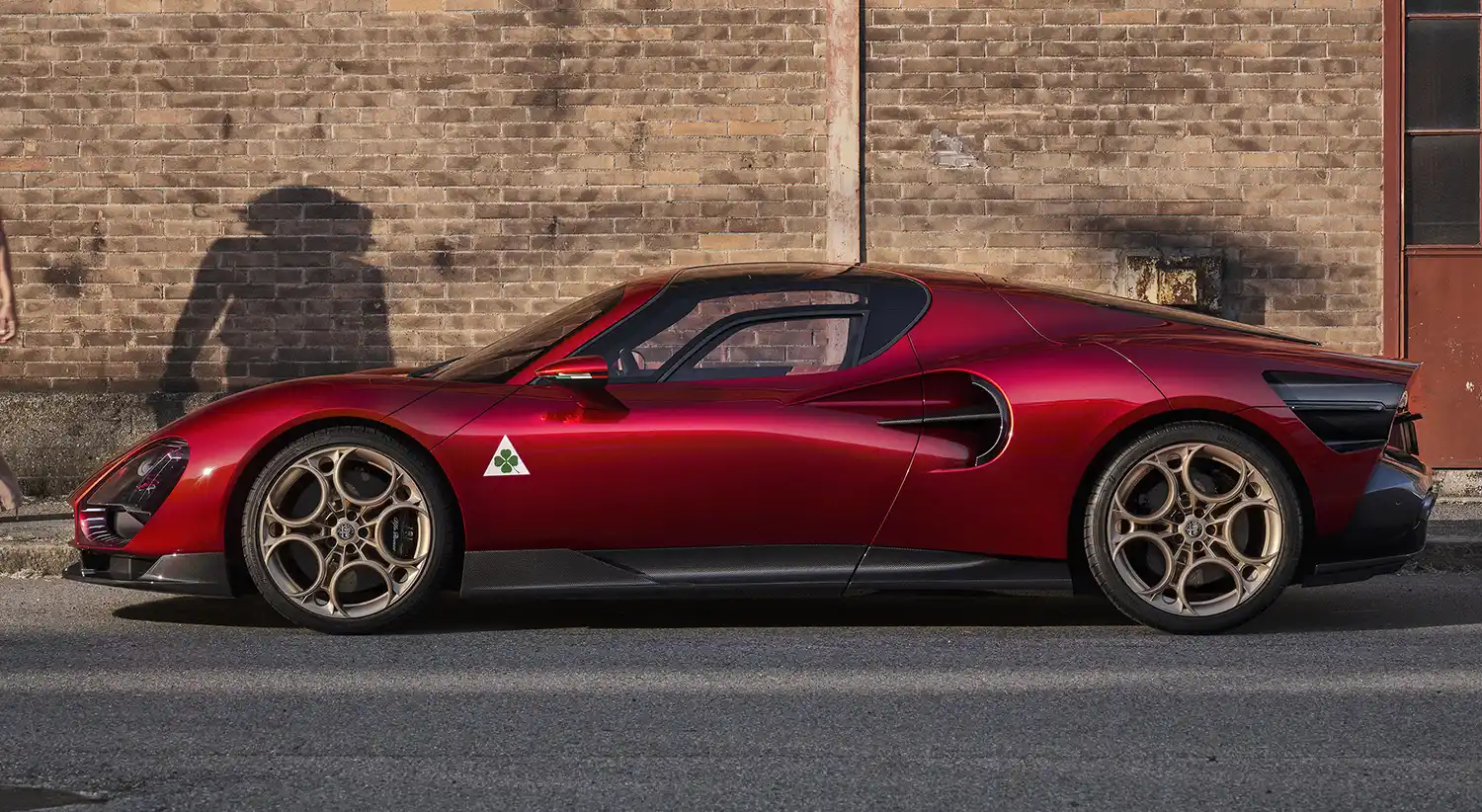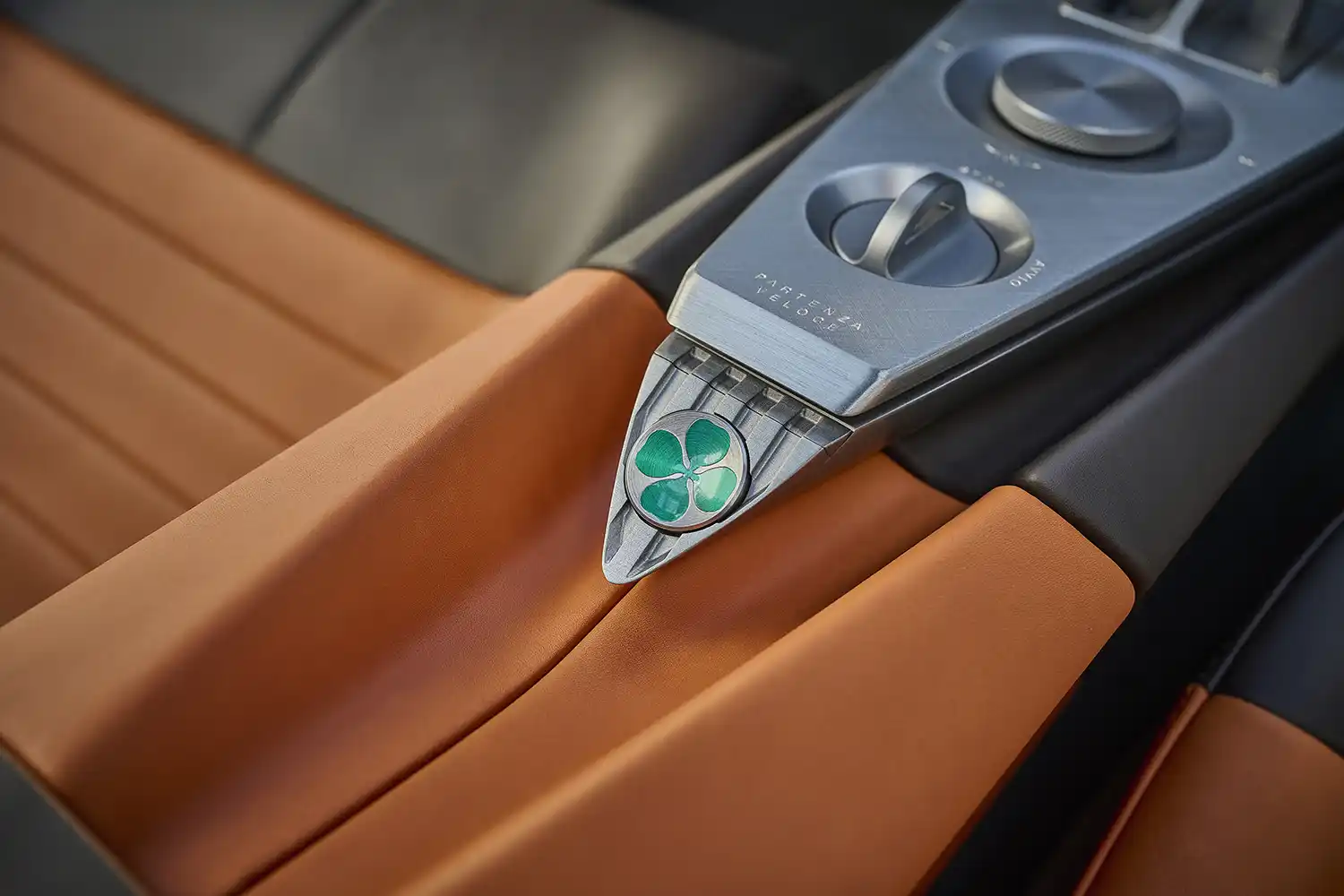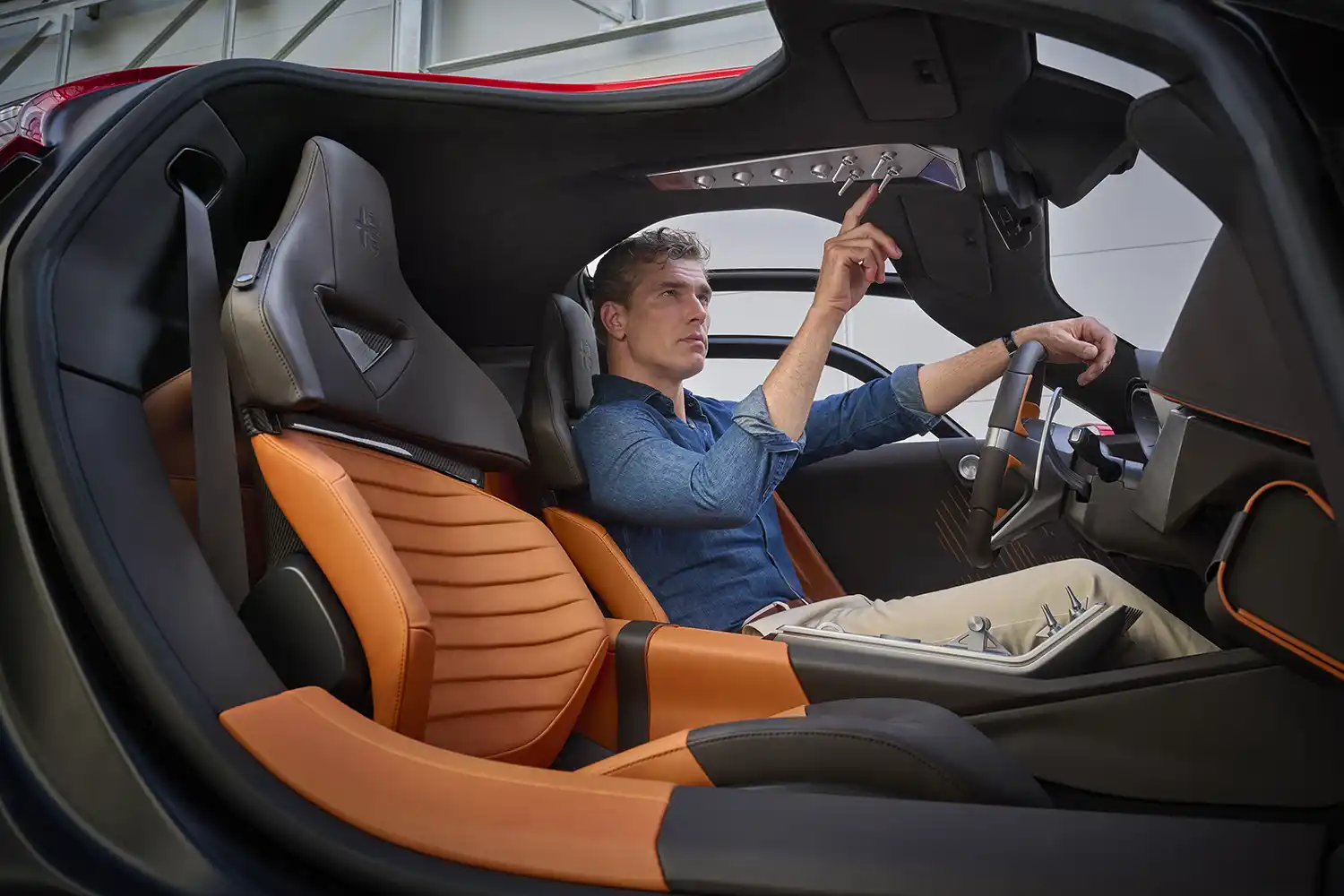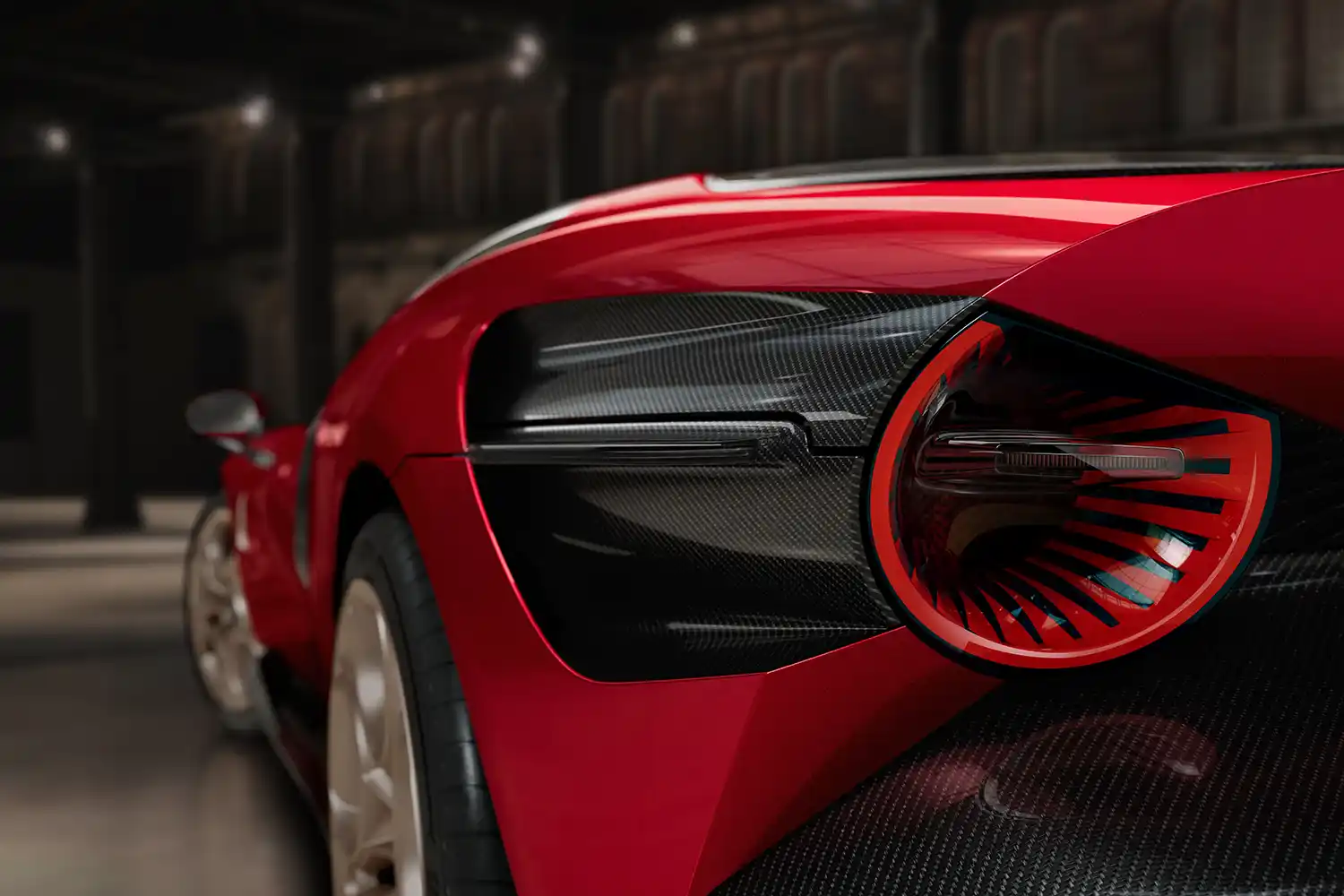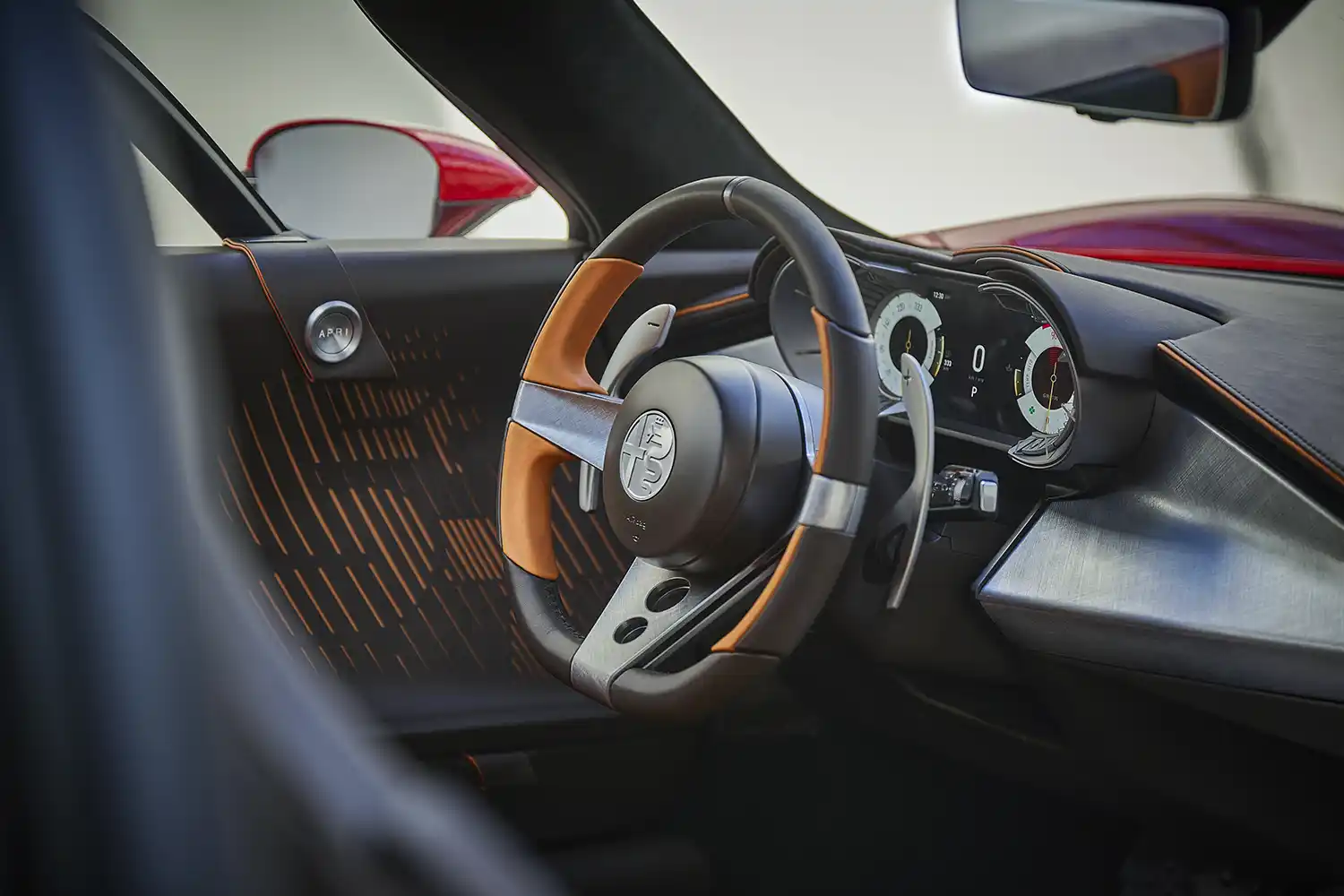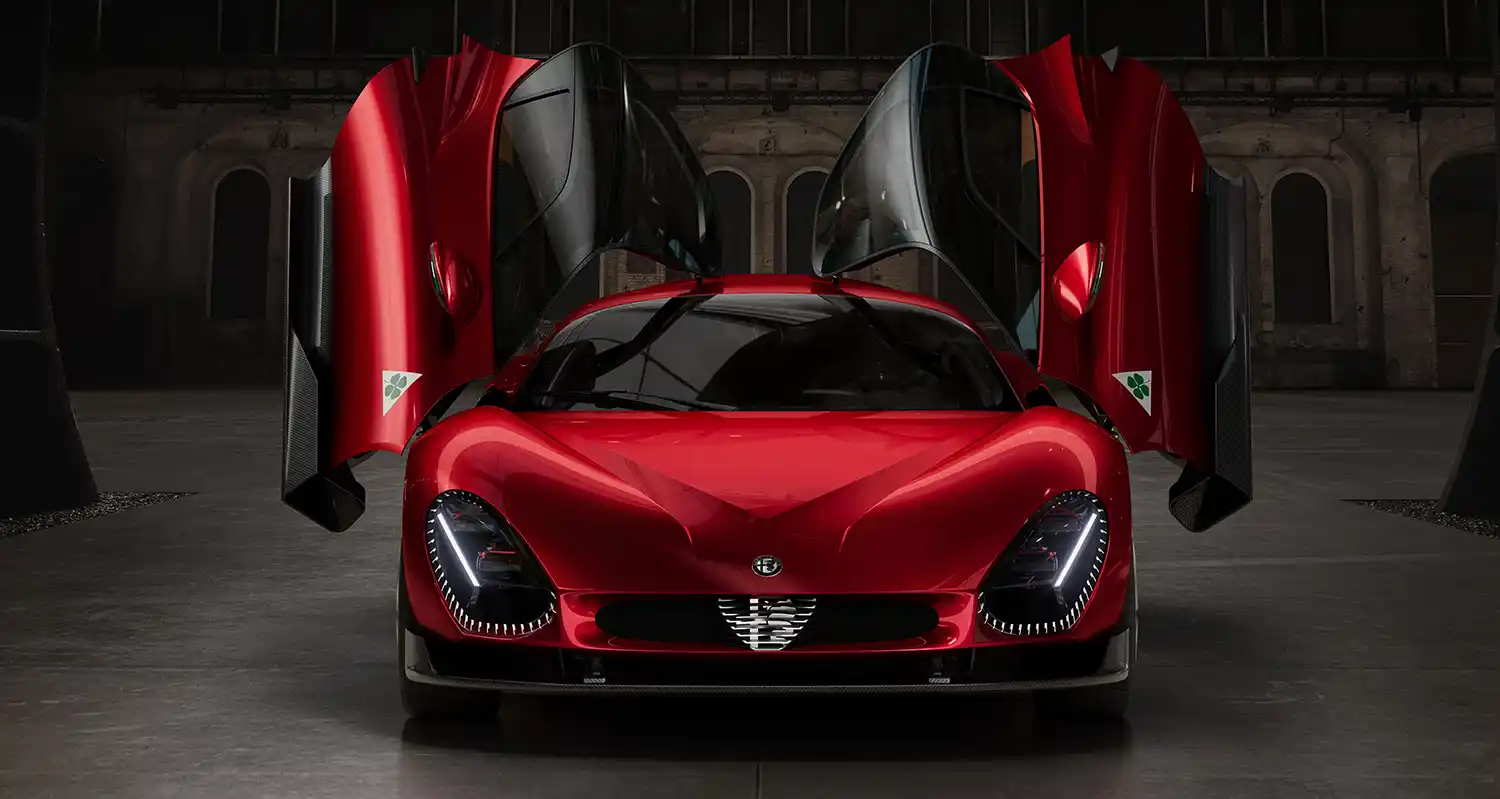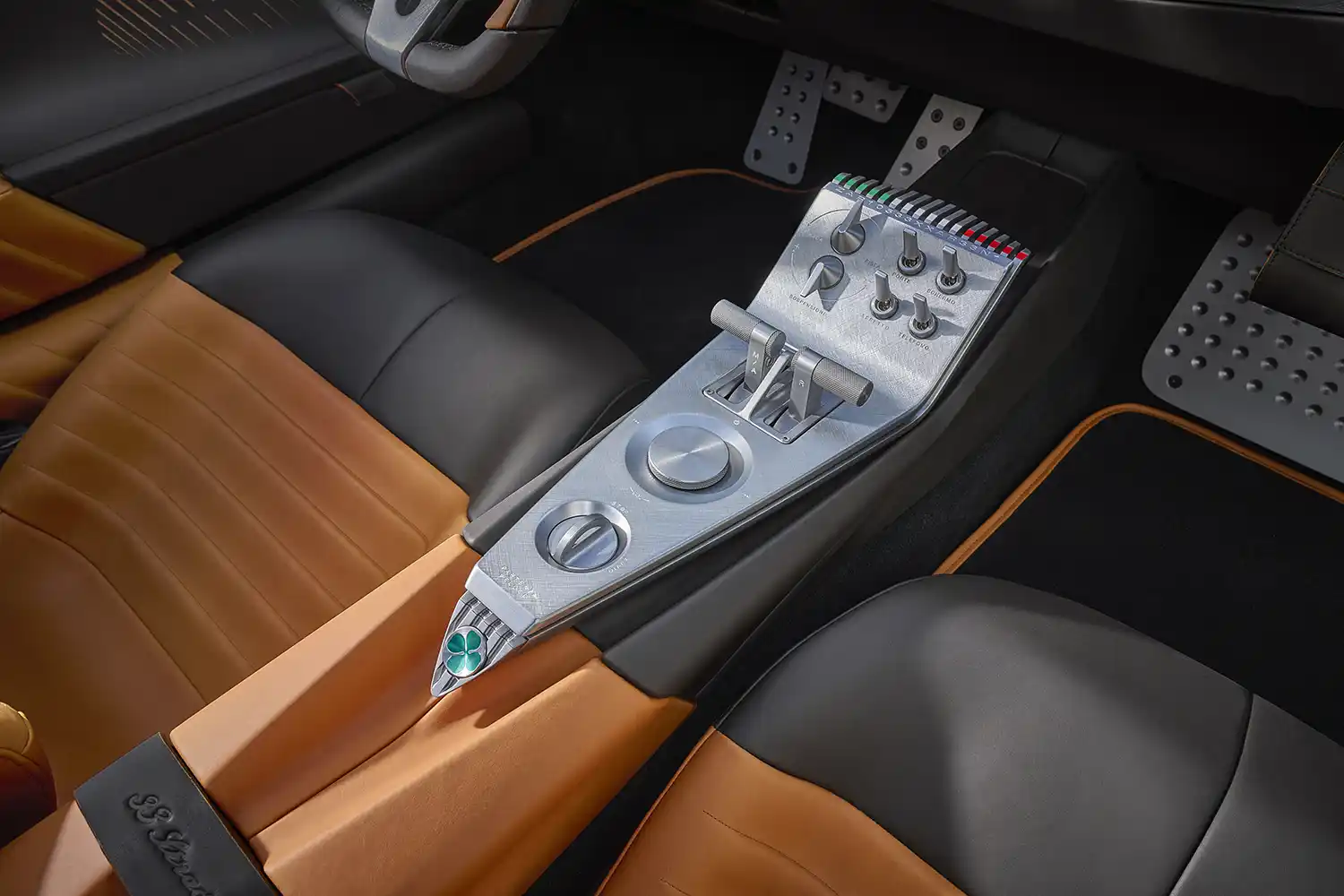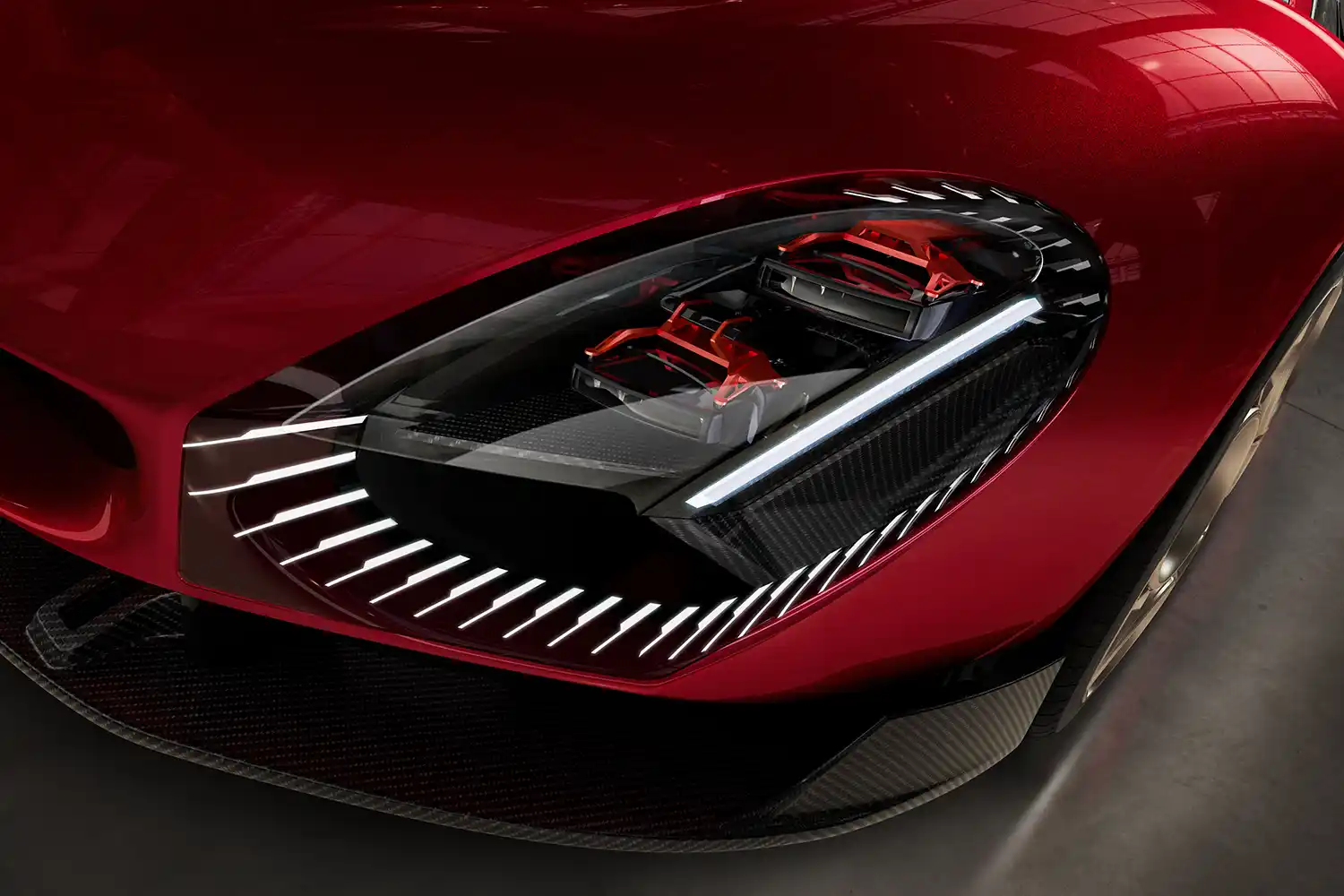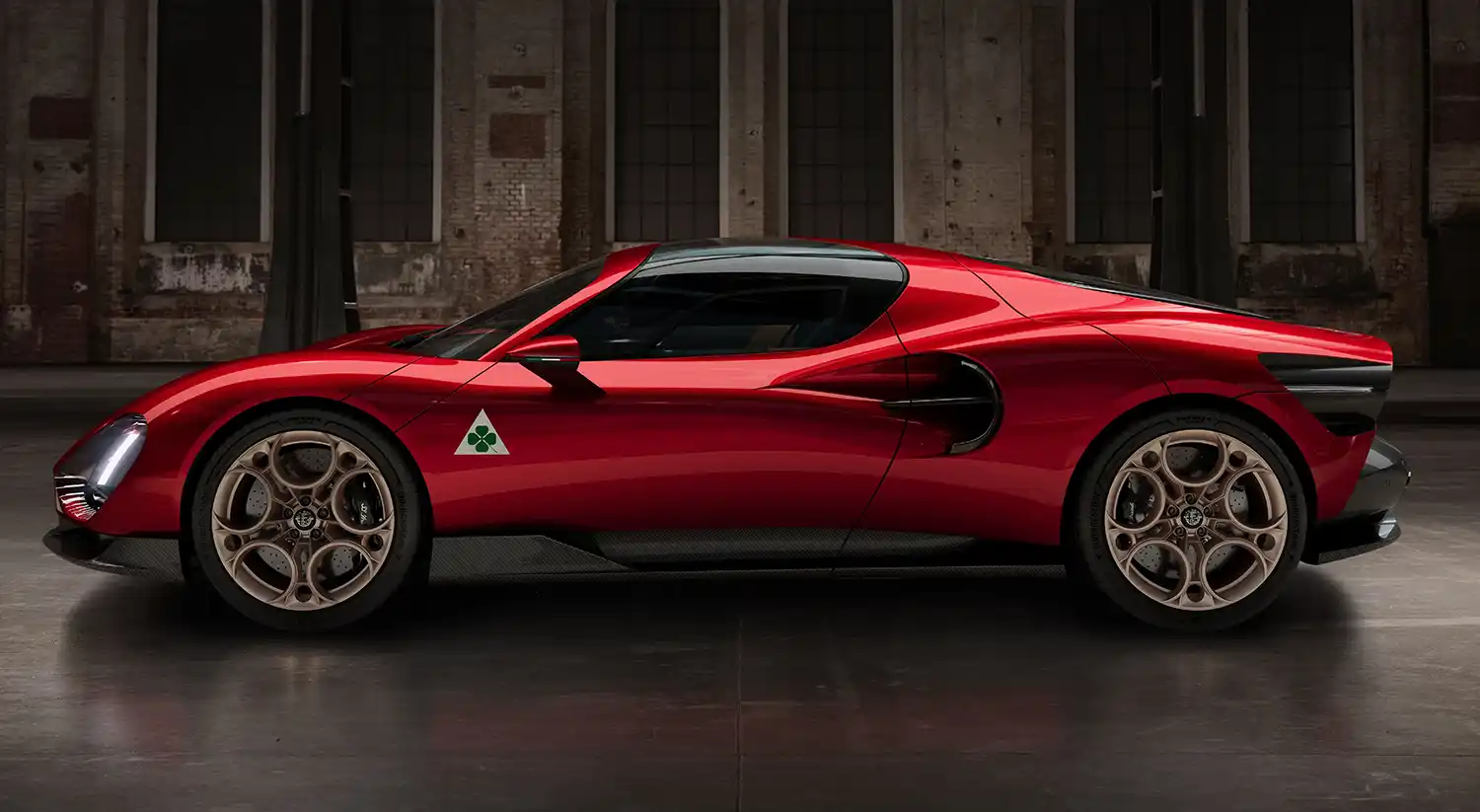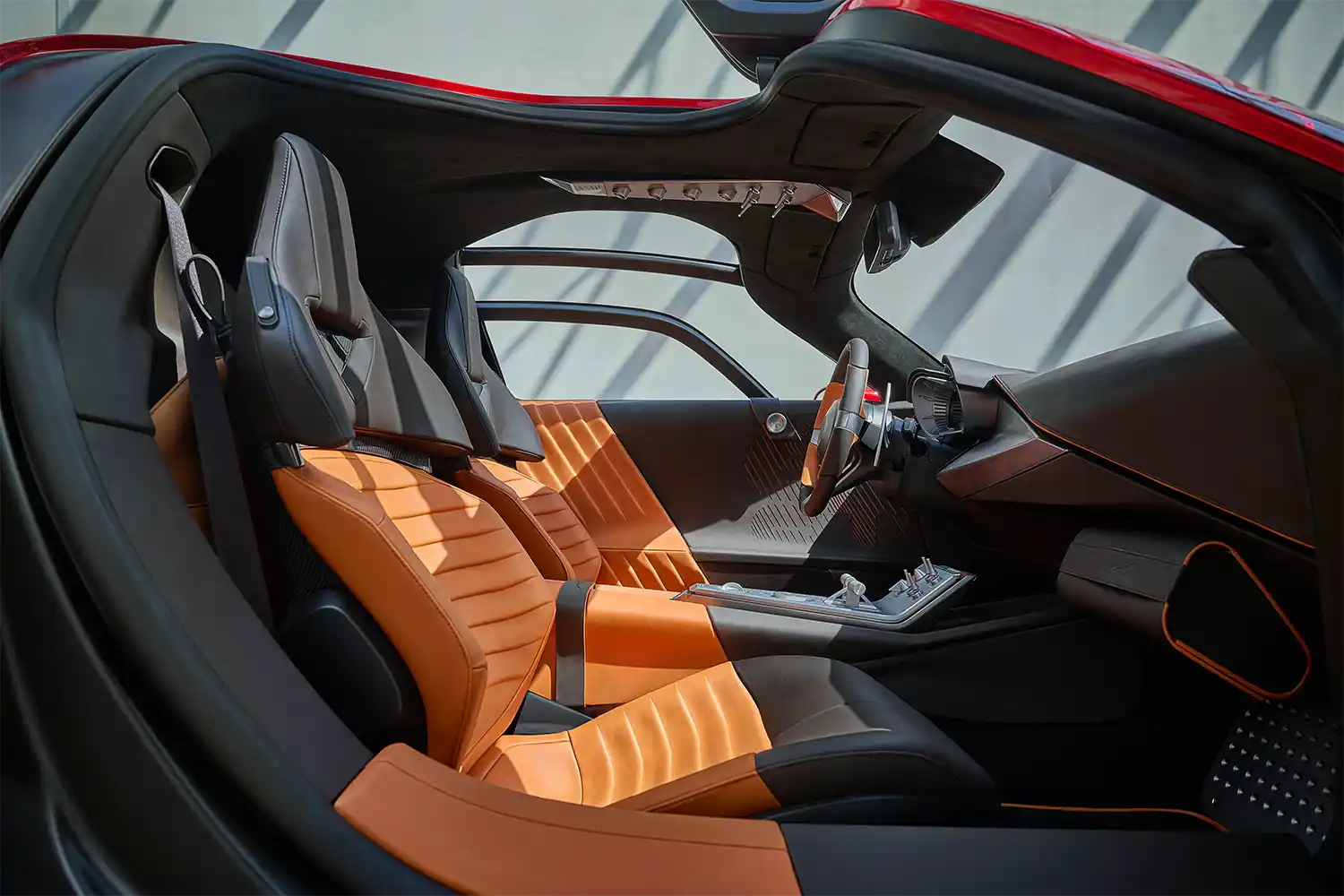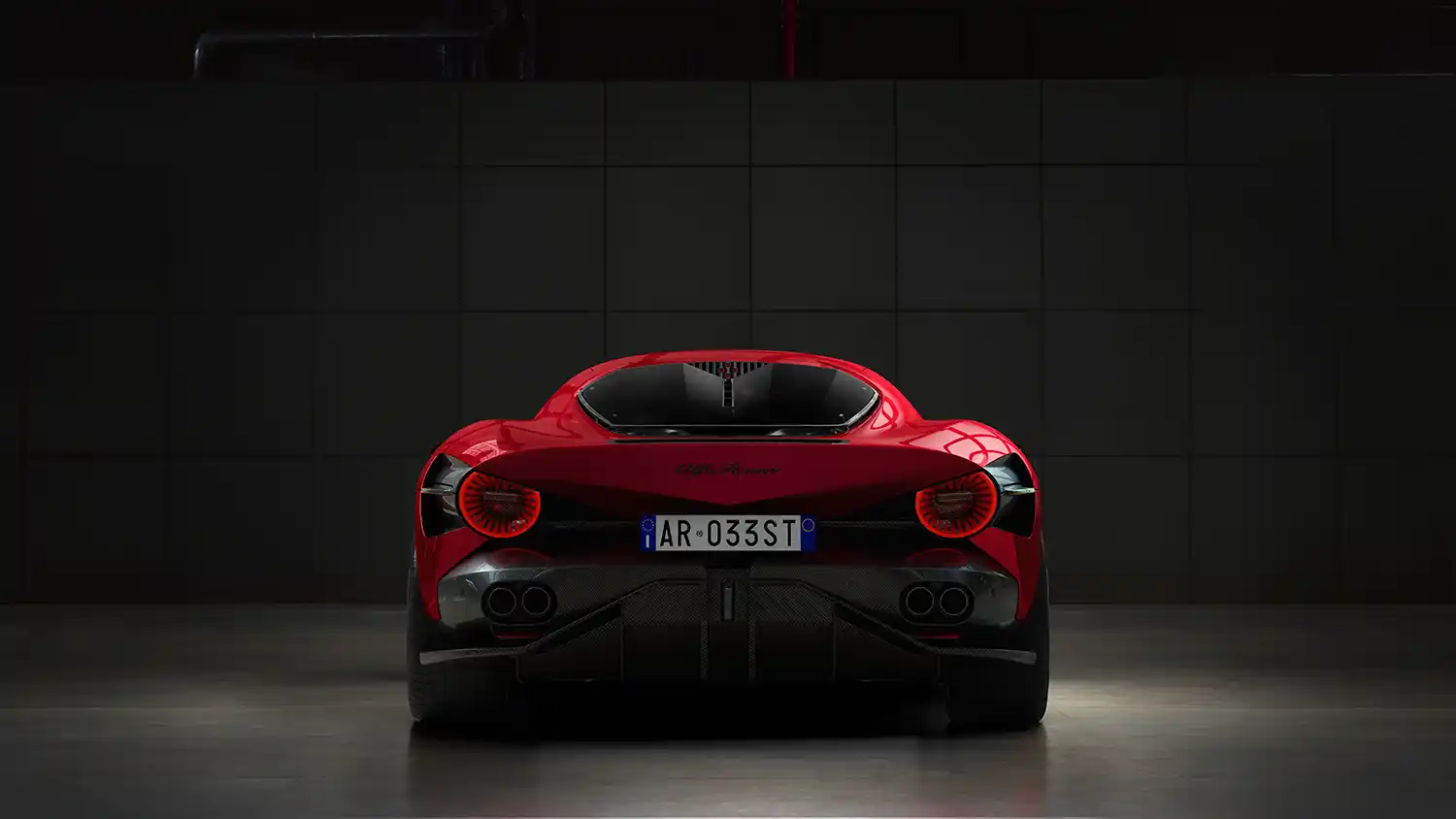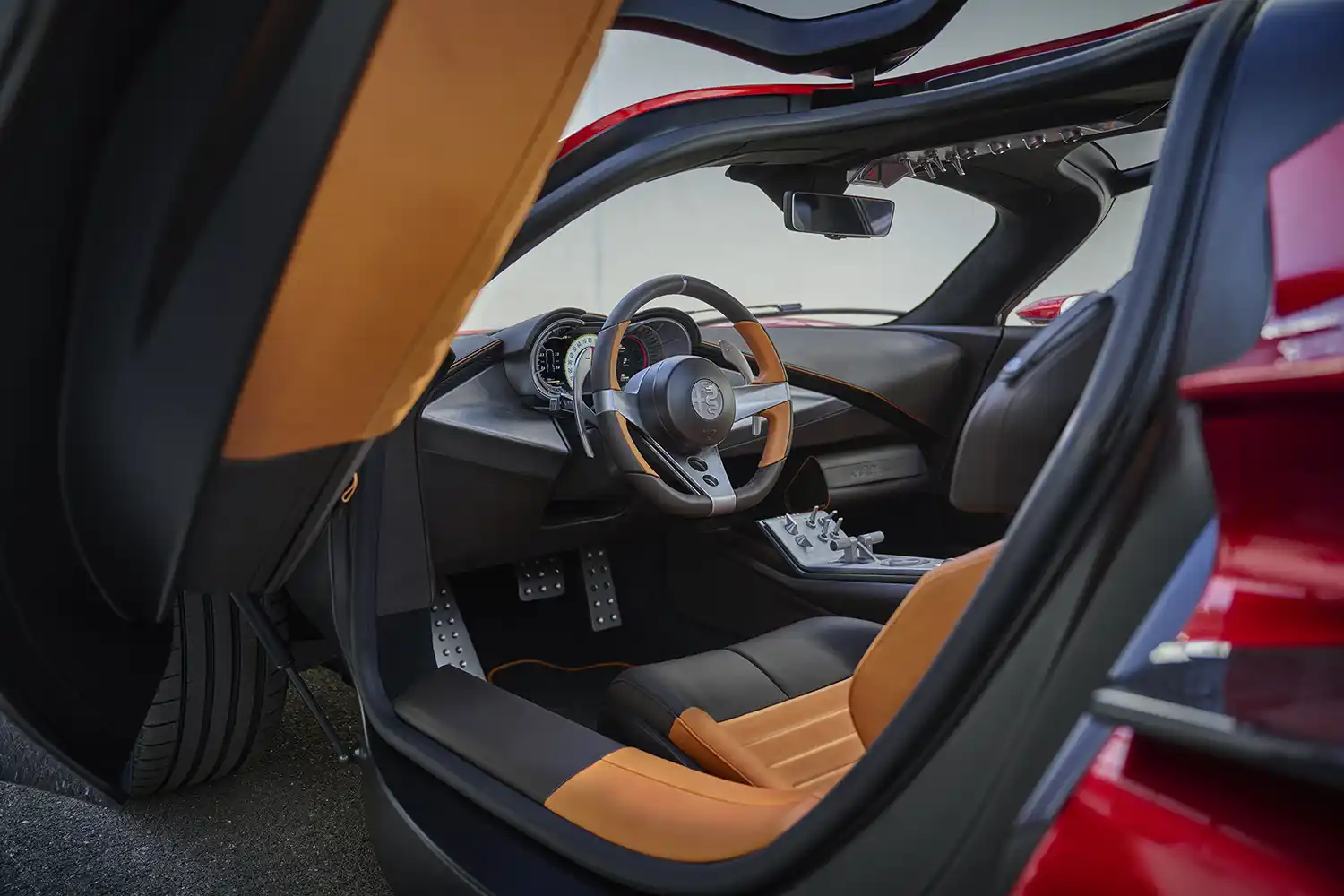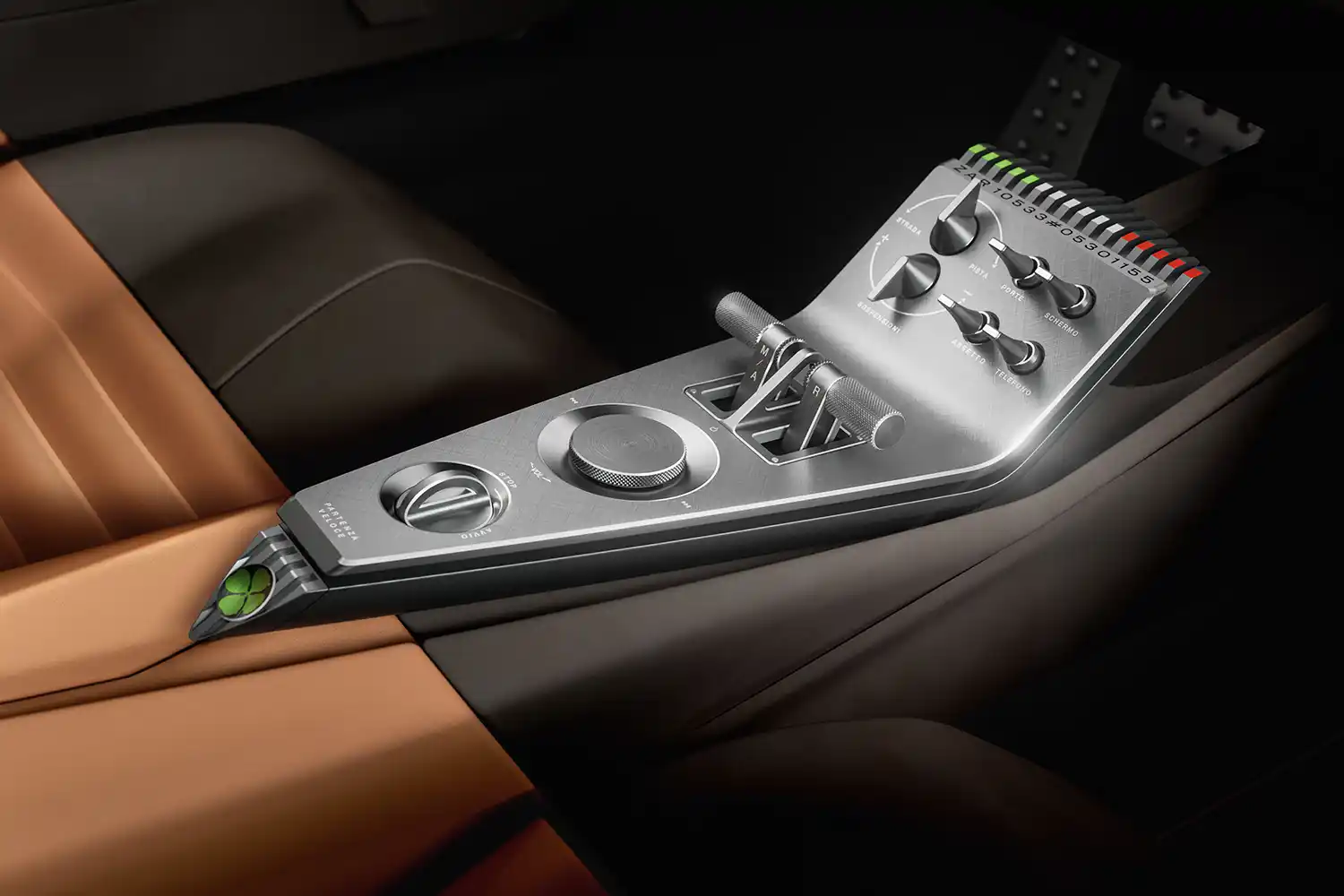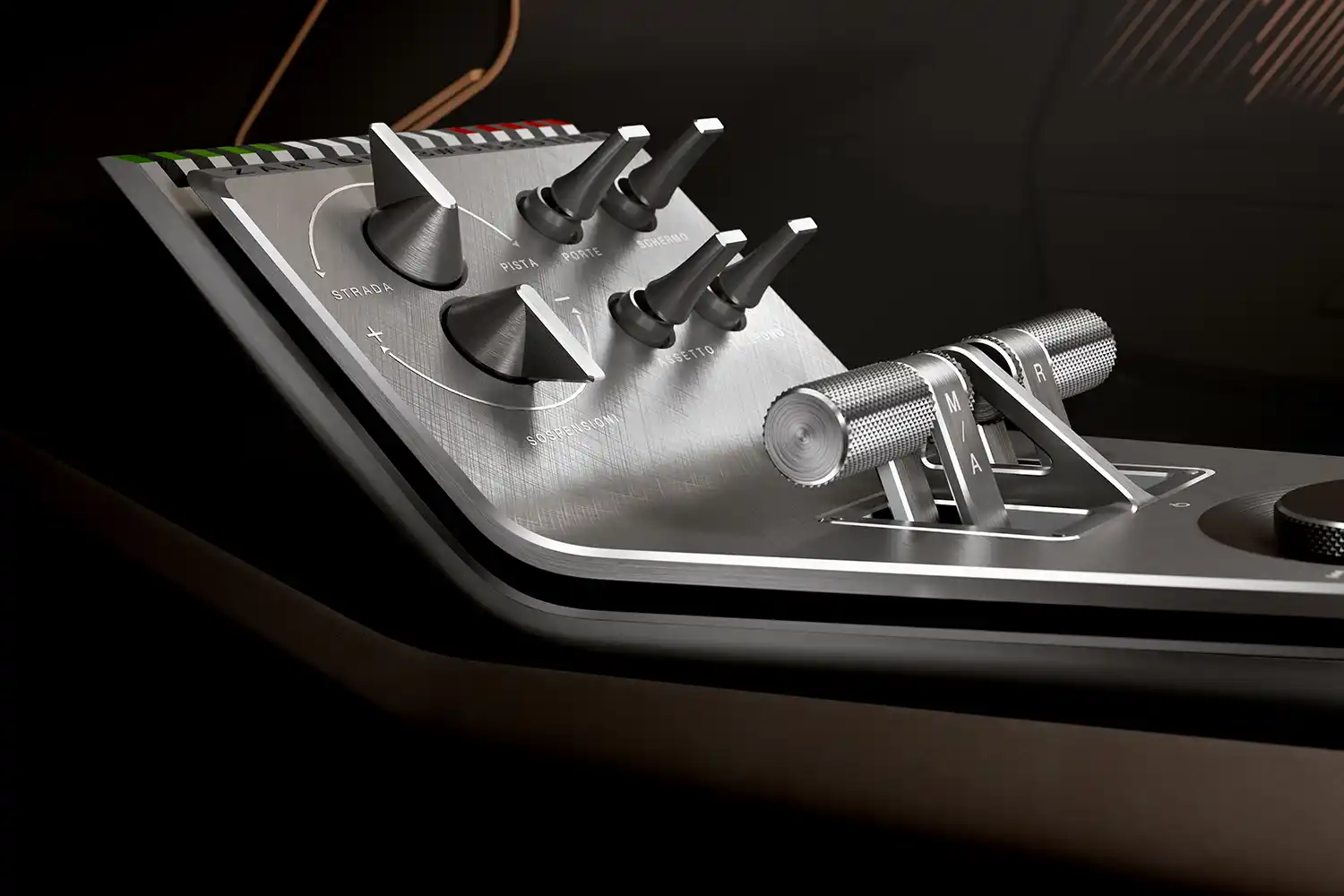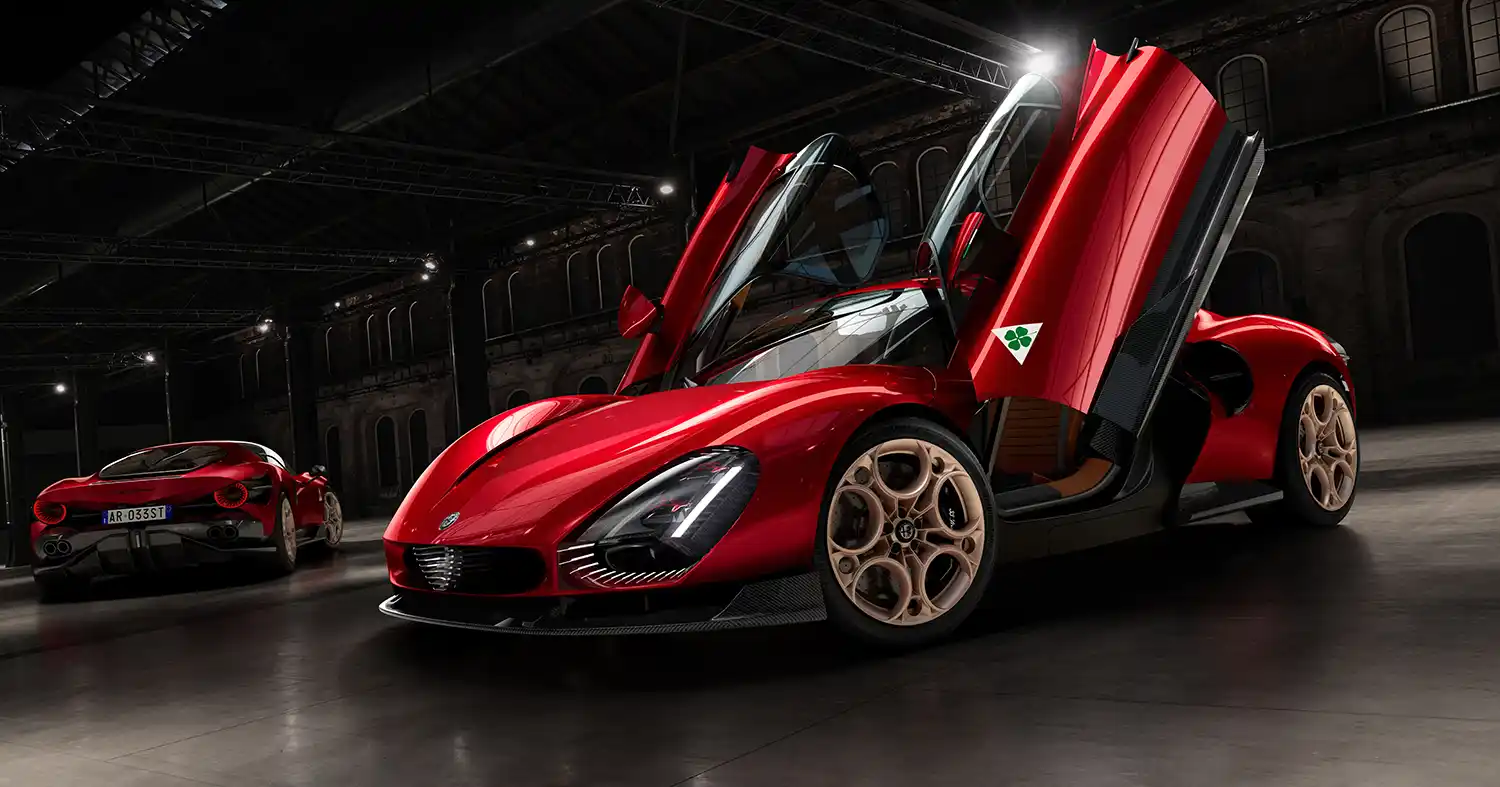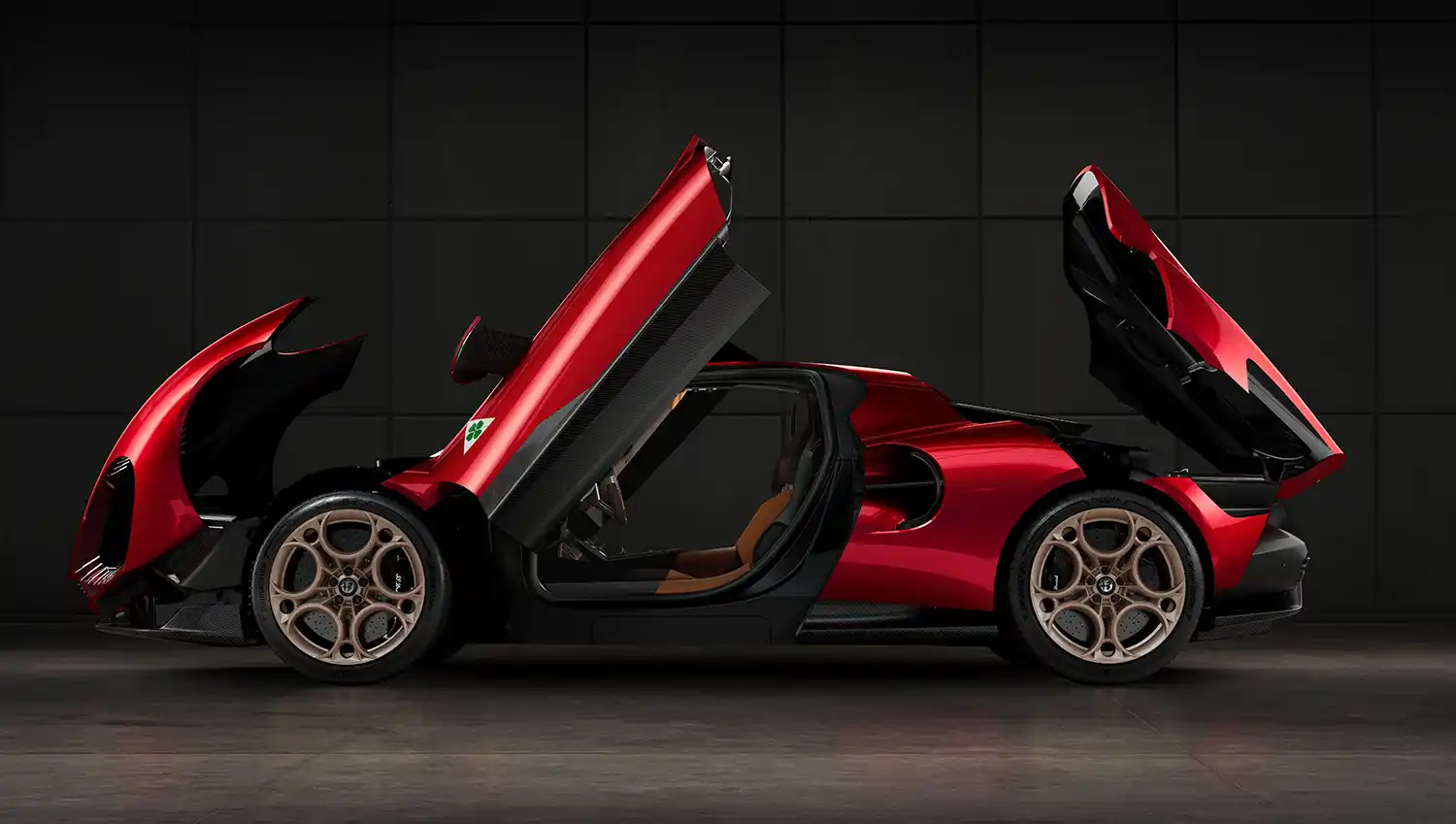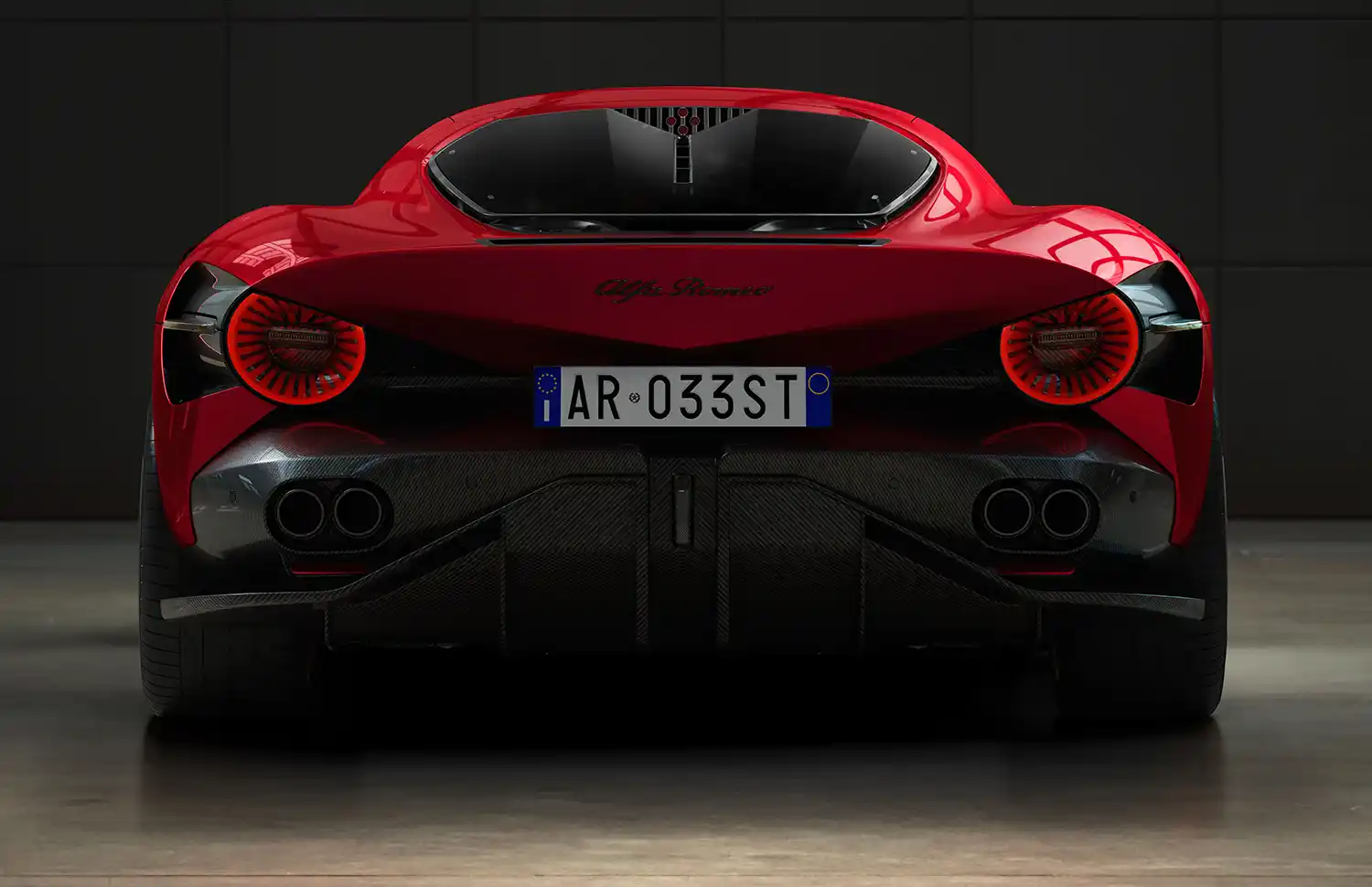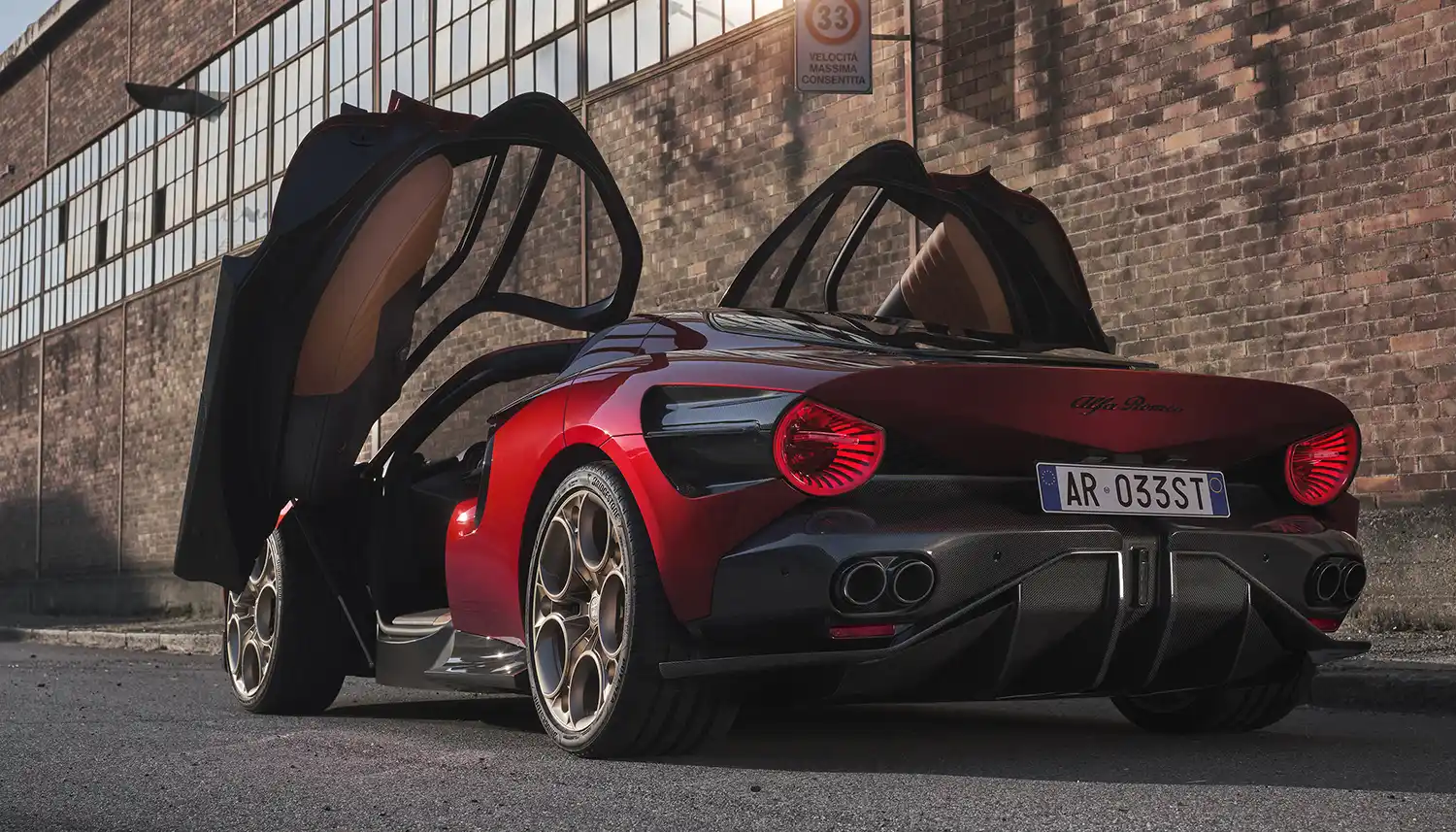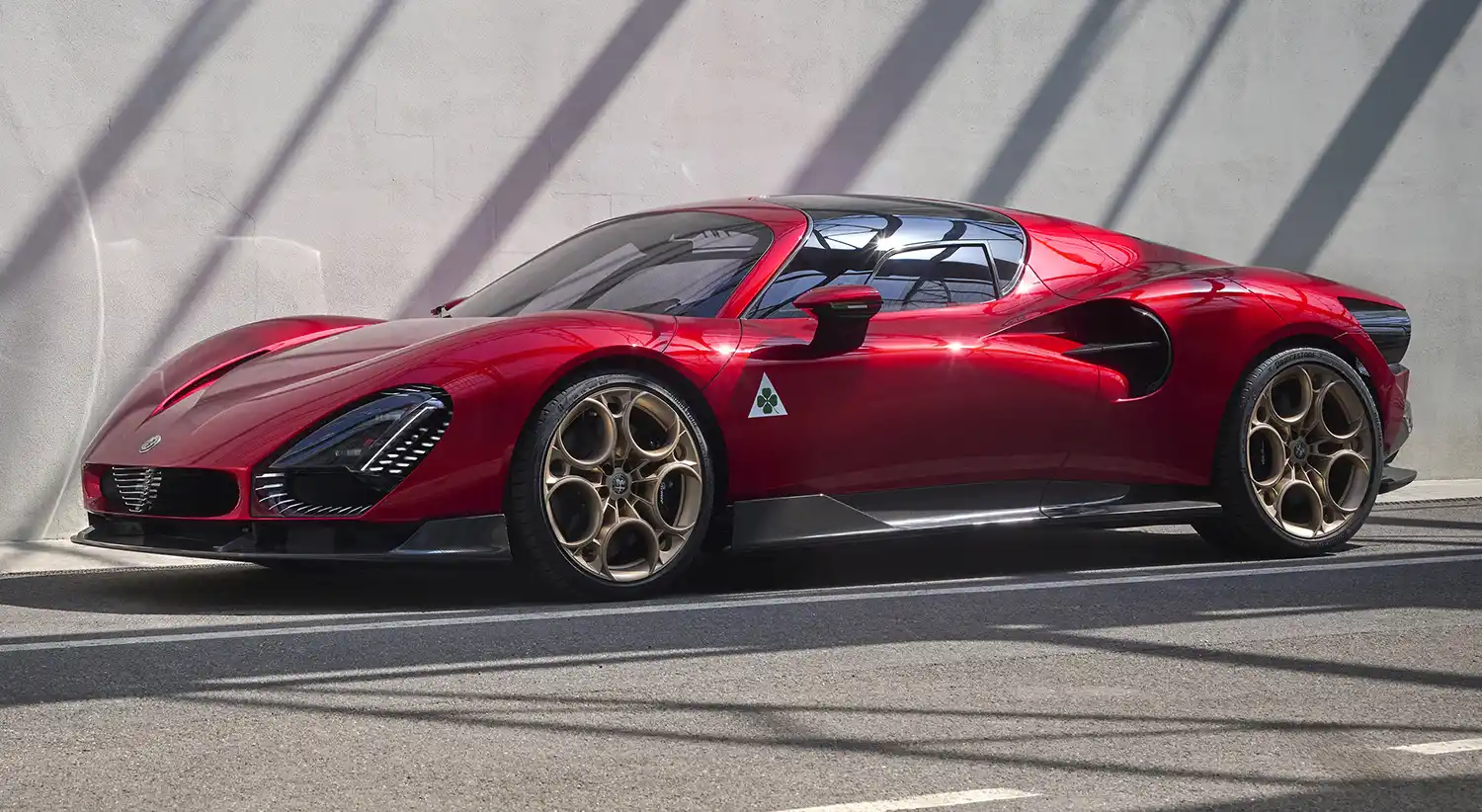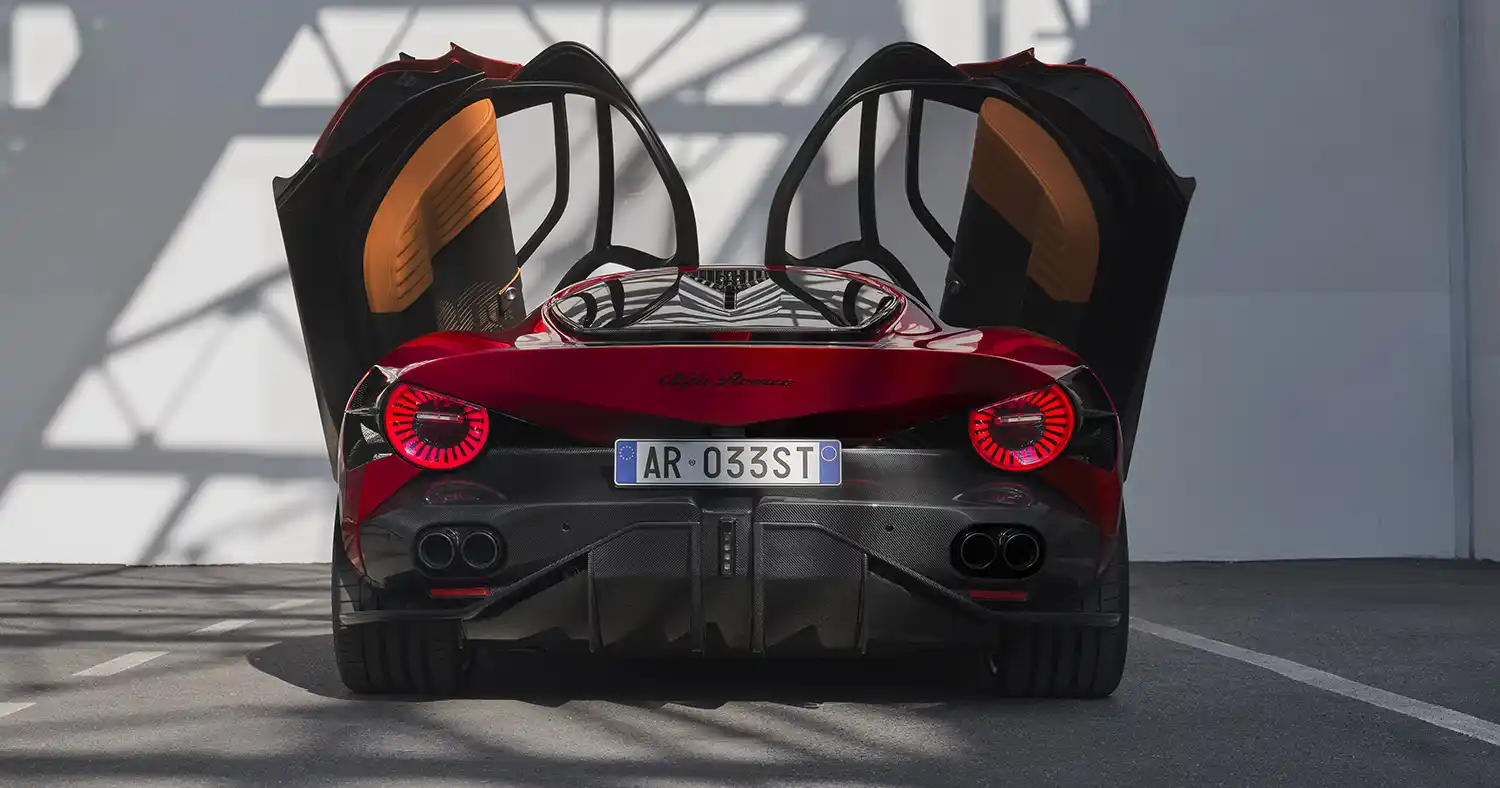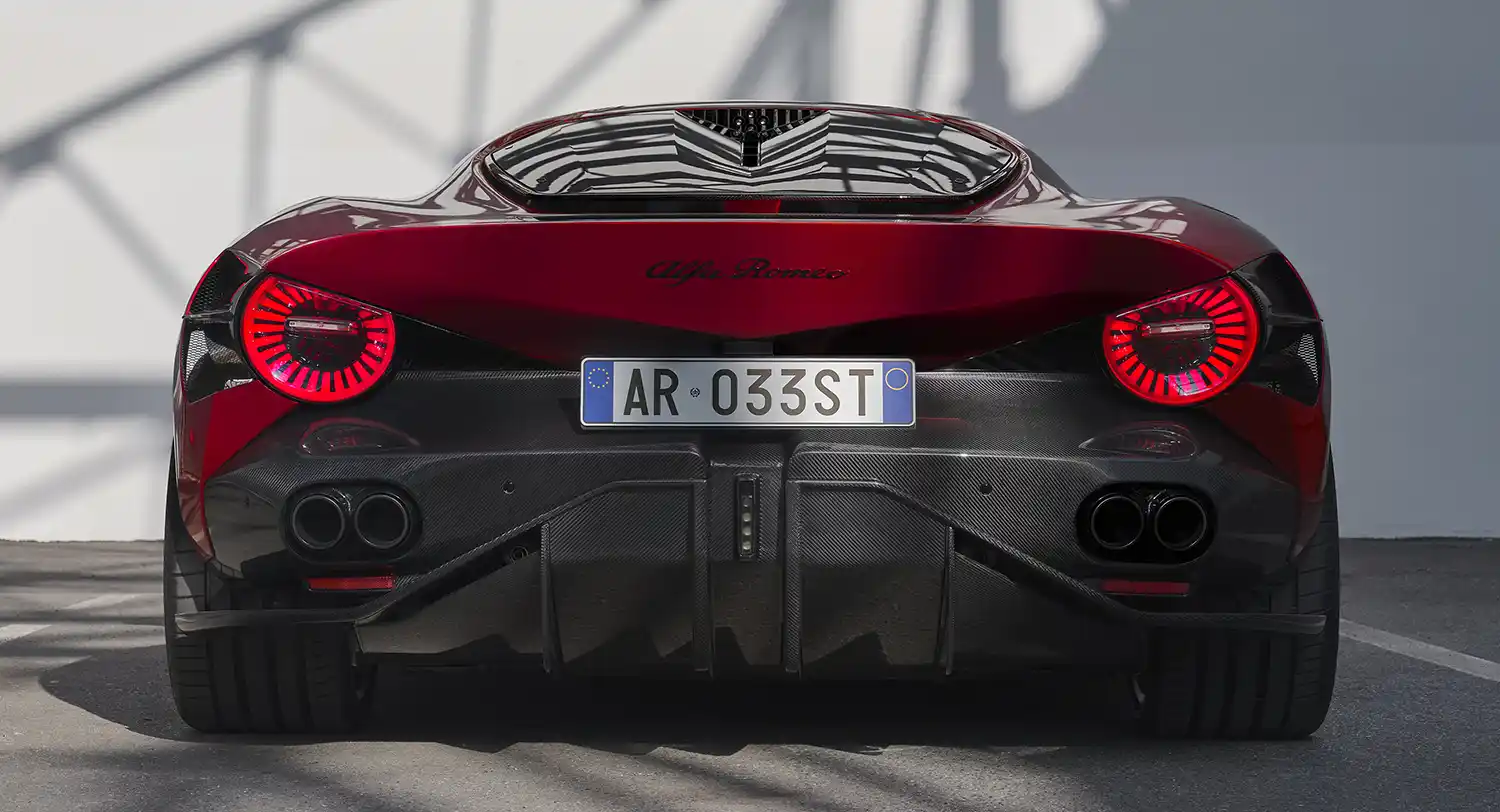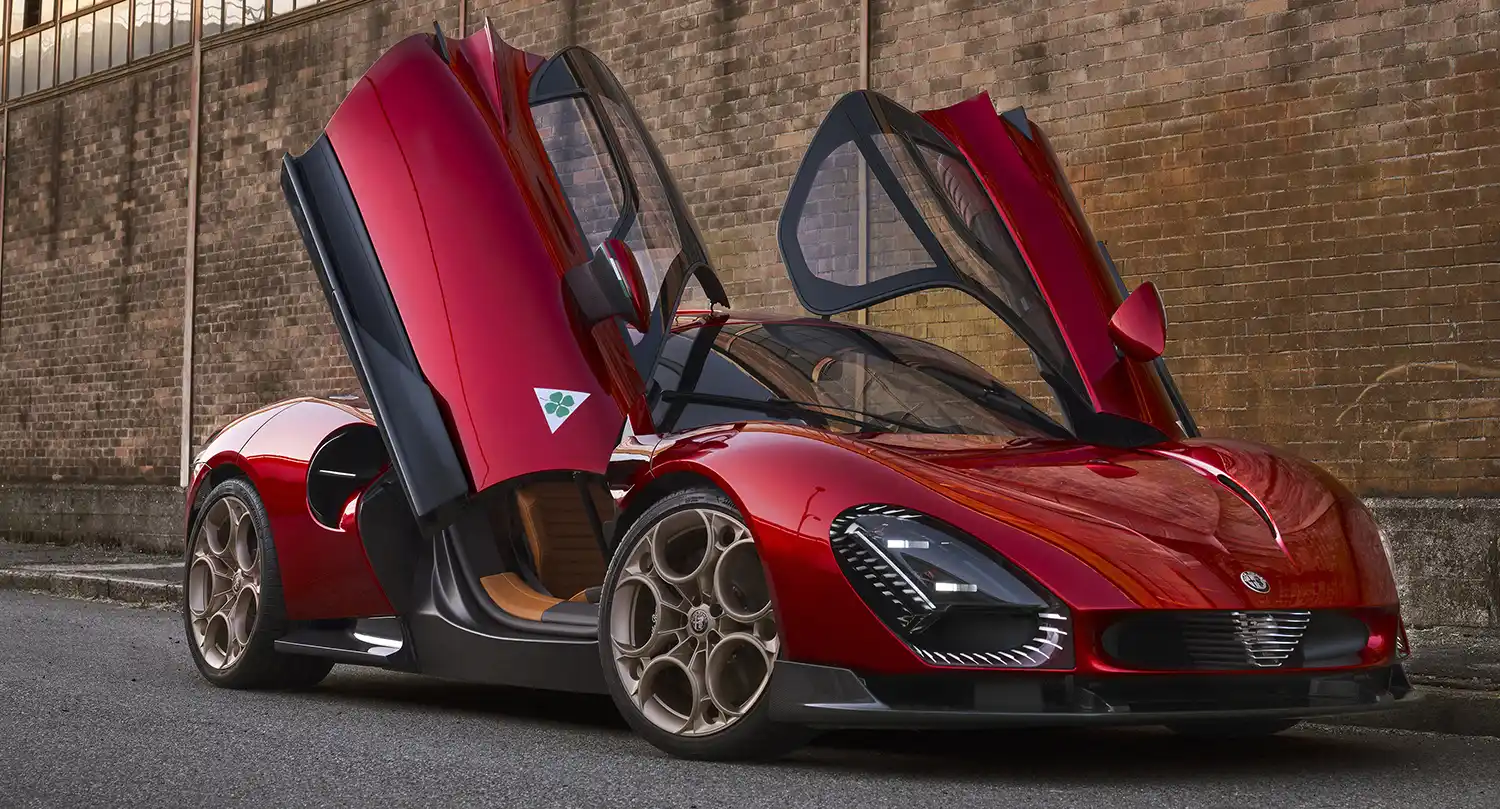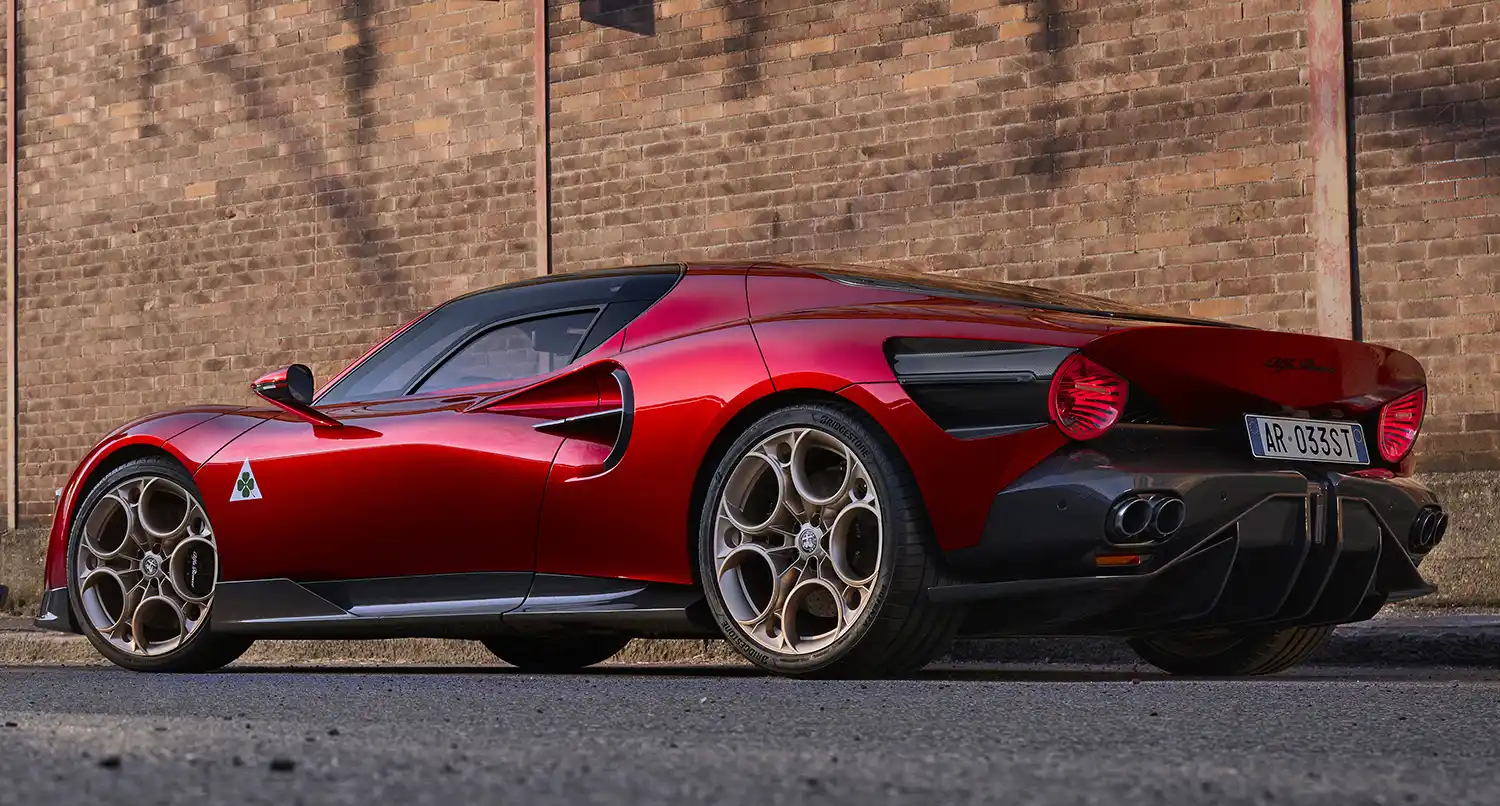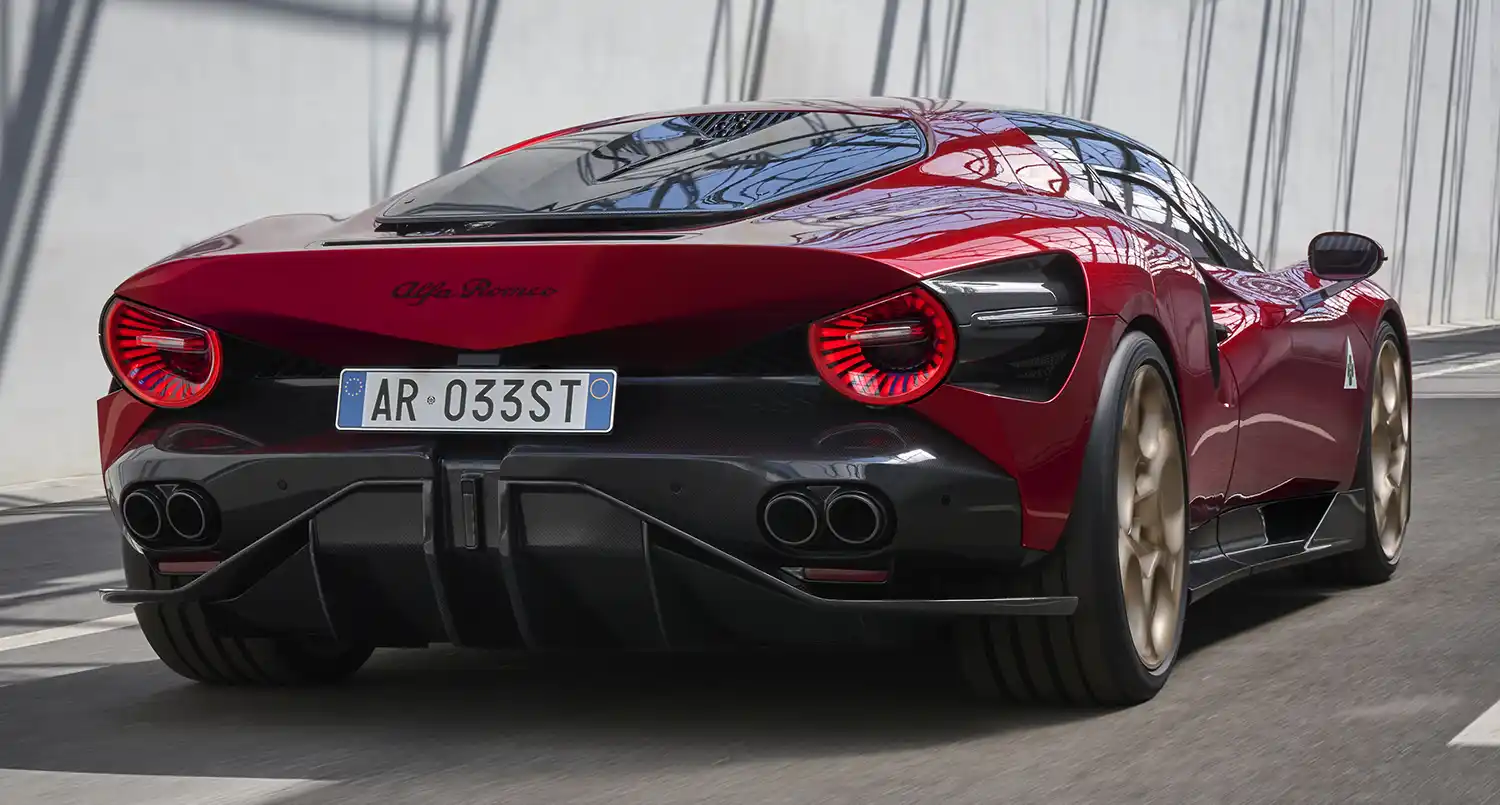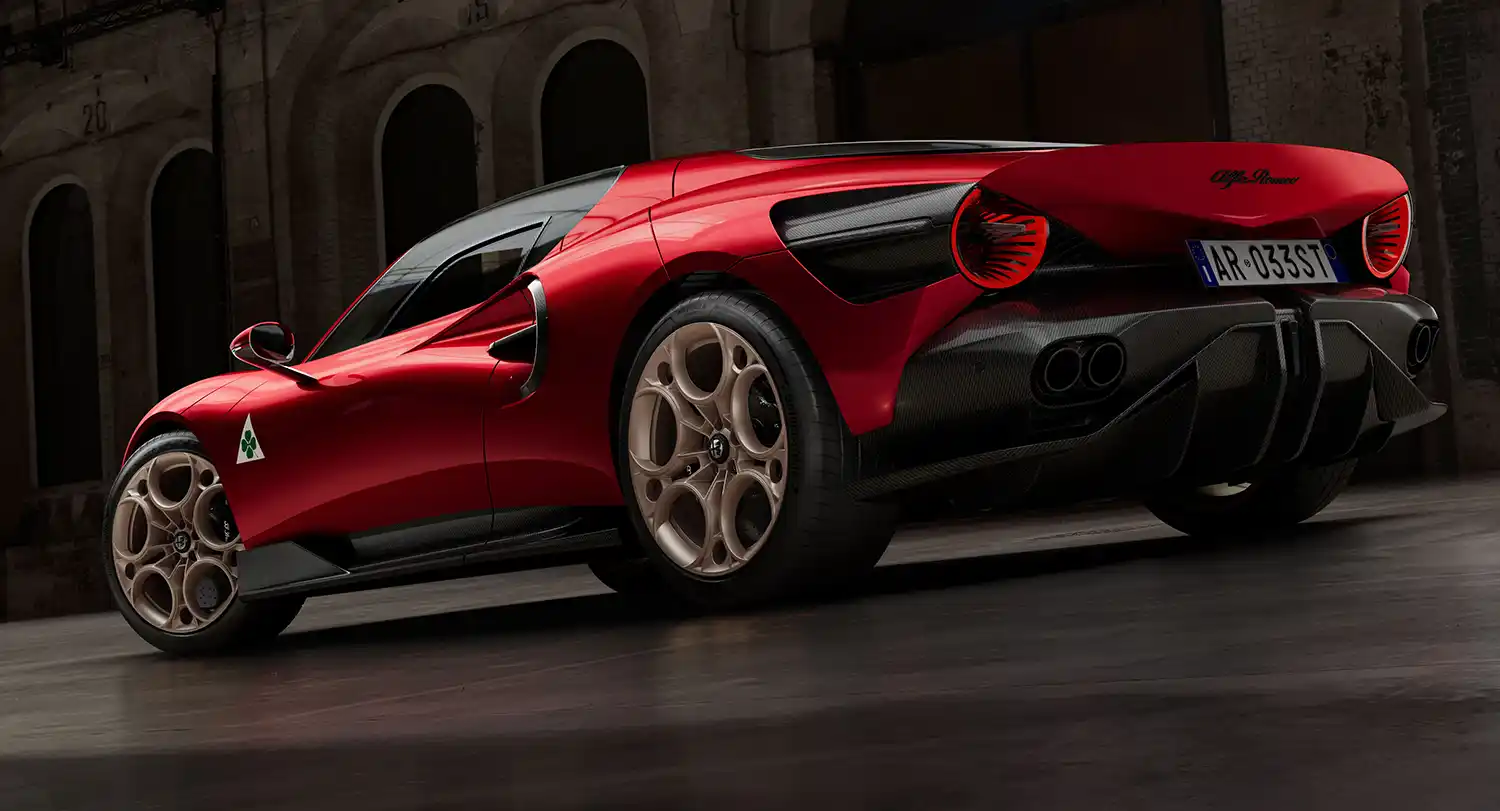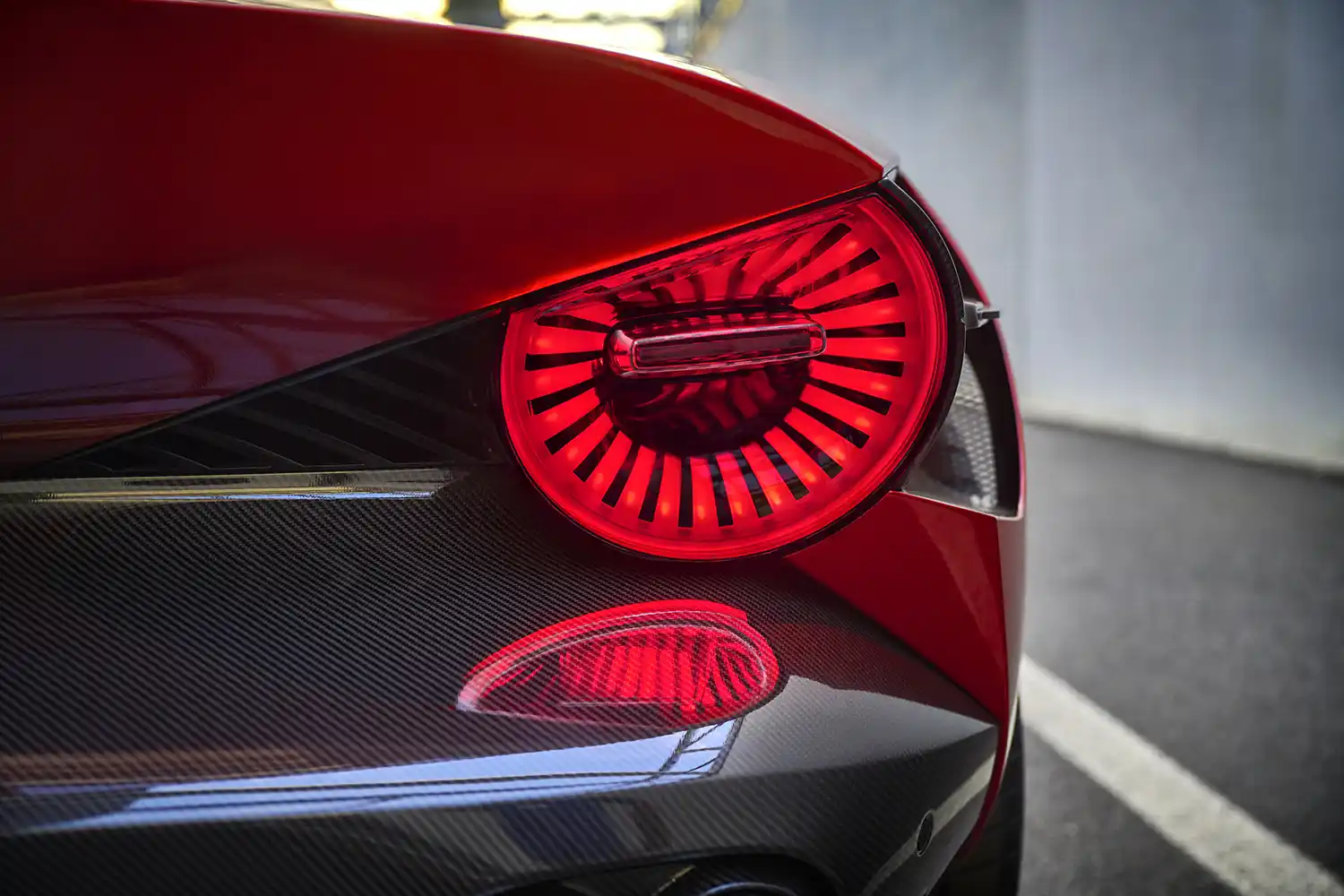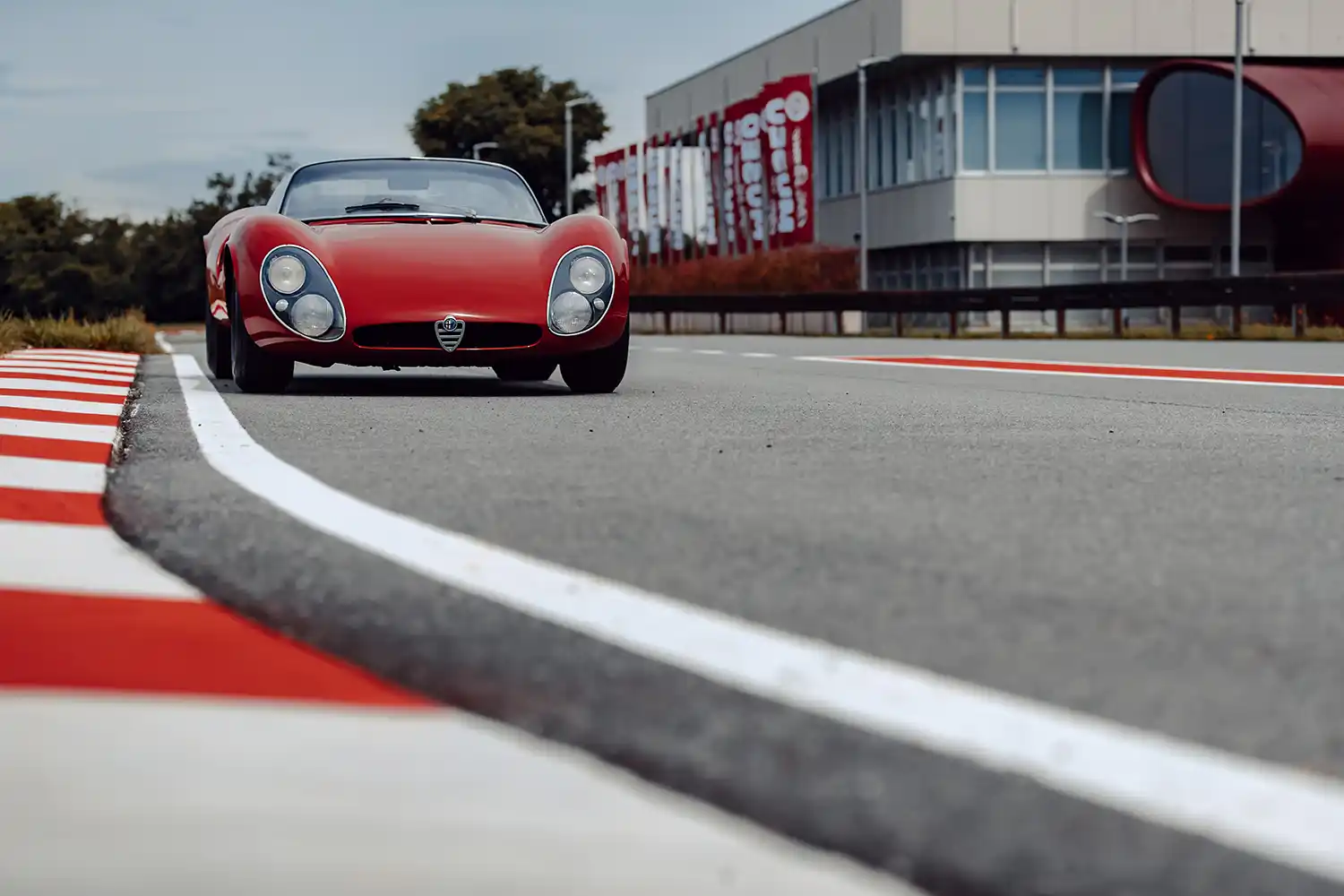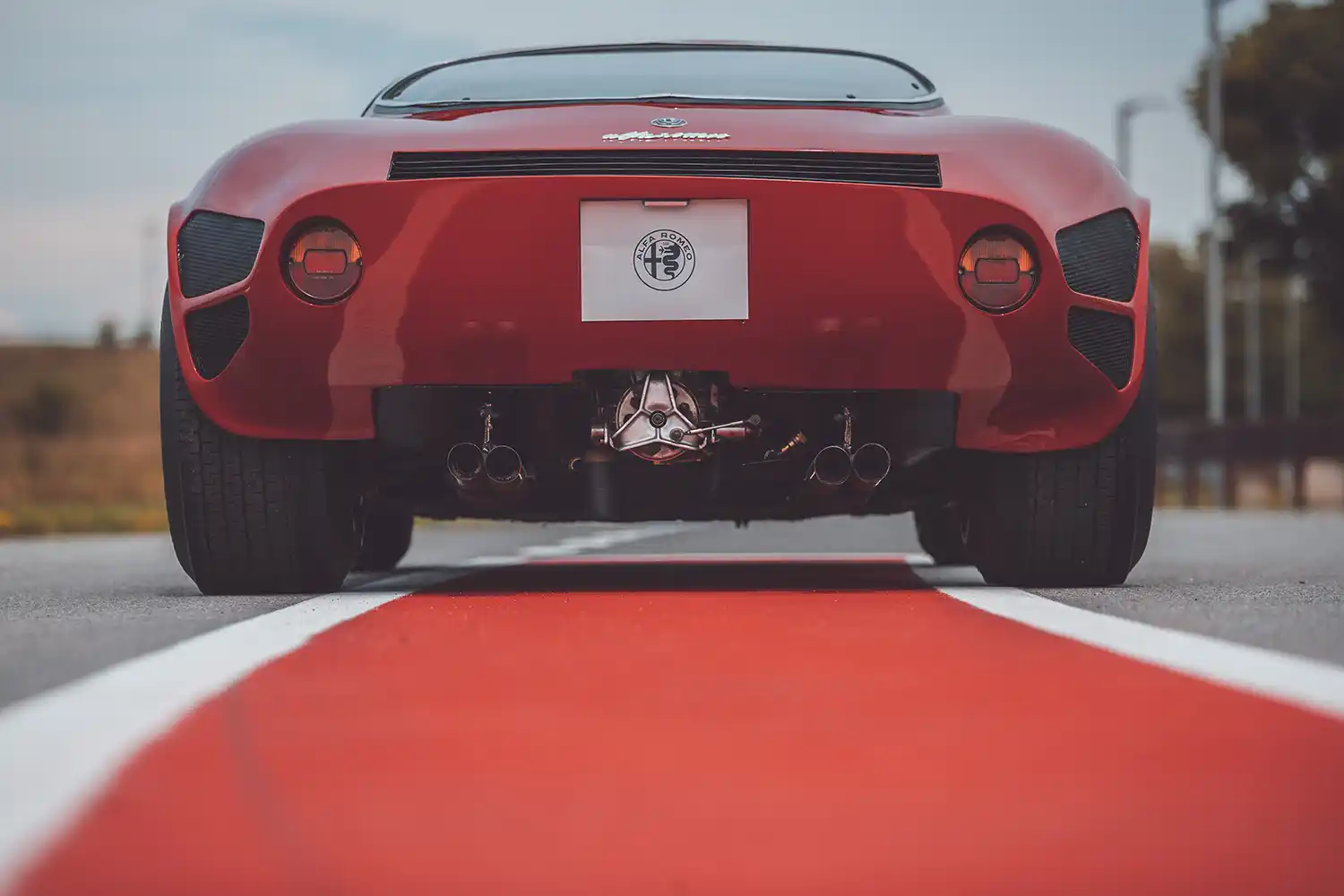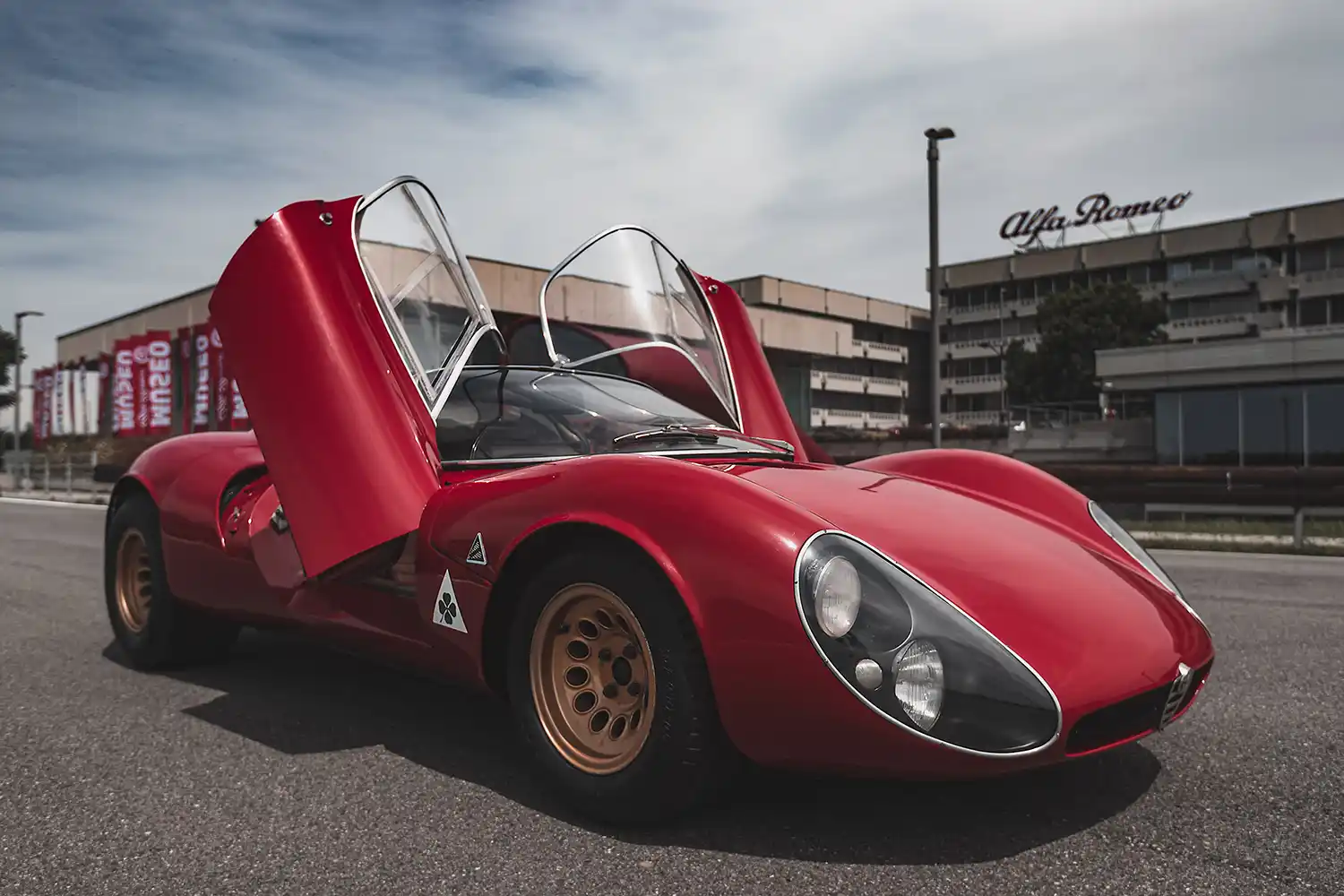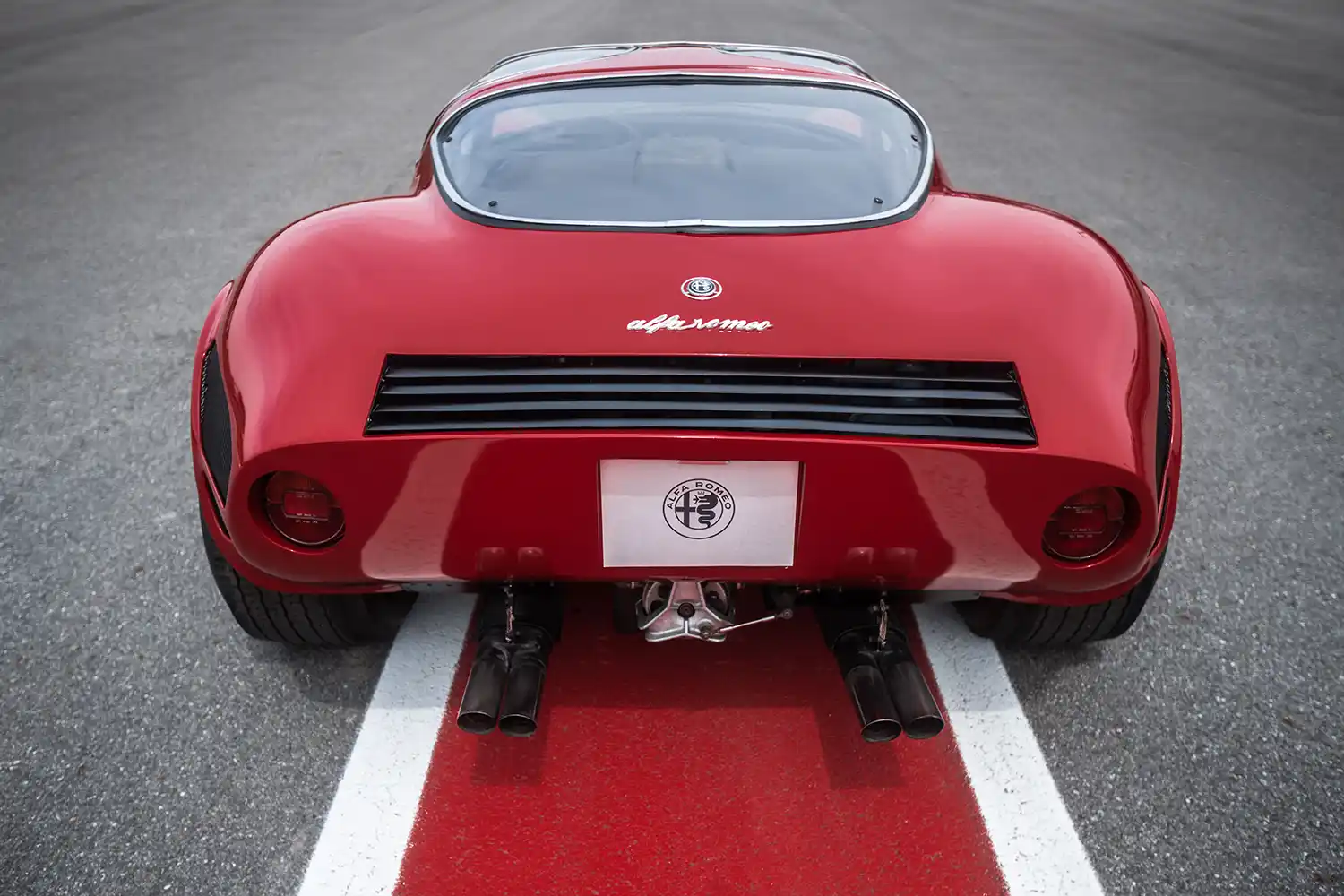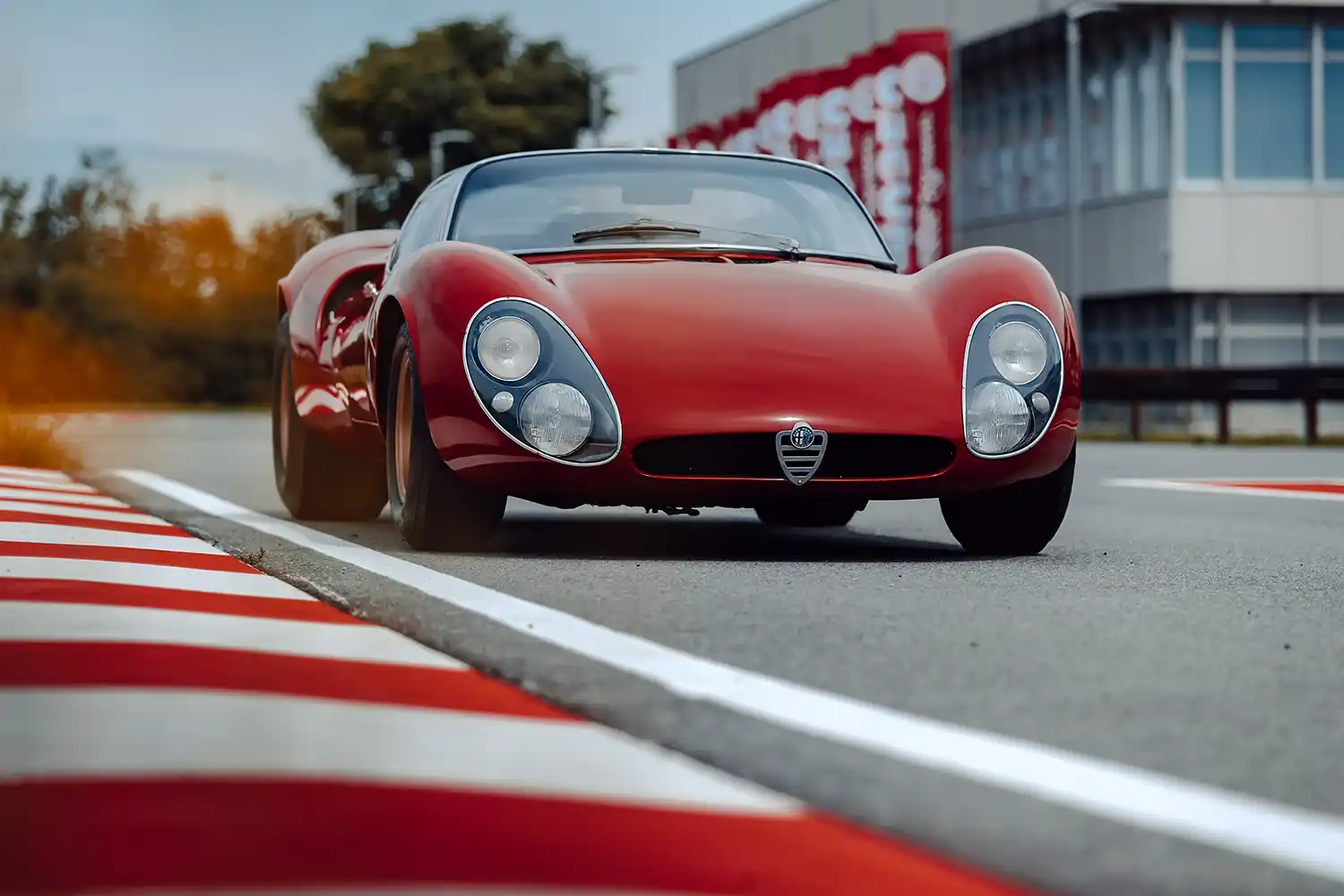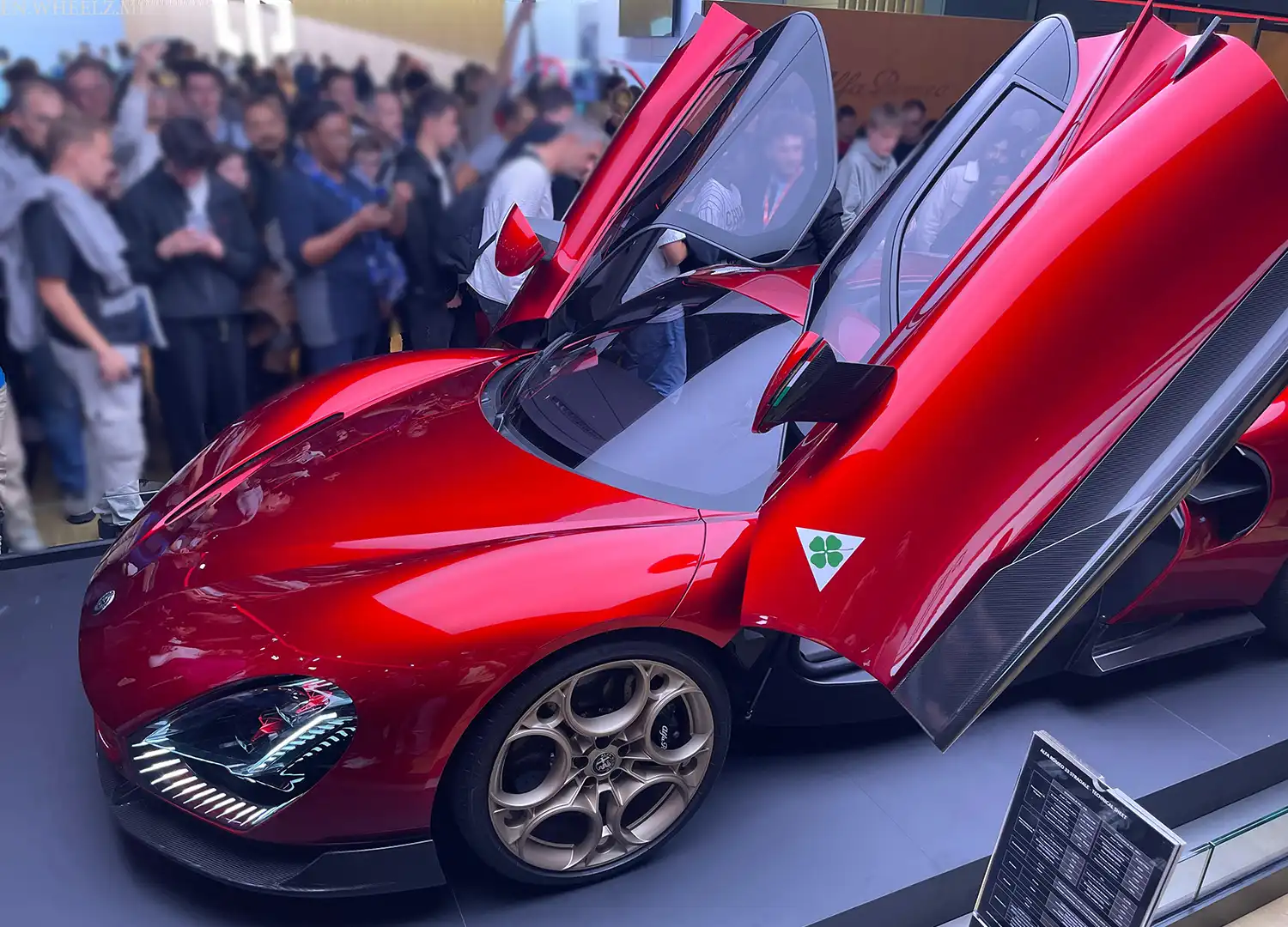
Alfa Romeo proudly announces the return of one of its most iconic nameplates with the 33 Stradale—a breathtaking reinterpretation of the legendary 1967 original. Built as a bespoke fuoriserie model, only 33 individually tailored units will be produced, combining Alfa Romeo’s storied past with the promise of its design and engineering future.
Inspired by the iconic Tipo 33-based 1967 Stradale, the new model carries forward the same passion, boldness, and artistic vision that made its predecessor a timeless beauty. Developed under the Alfa Romeo “Bottega,” each 33 Stradale is a moving sculpture, uniquely crafted in collaboration with customers in the spirit of Renaissance ateliers and Italian coachbuilders.
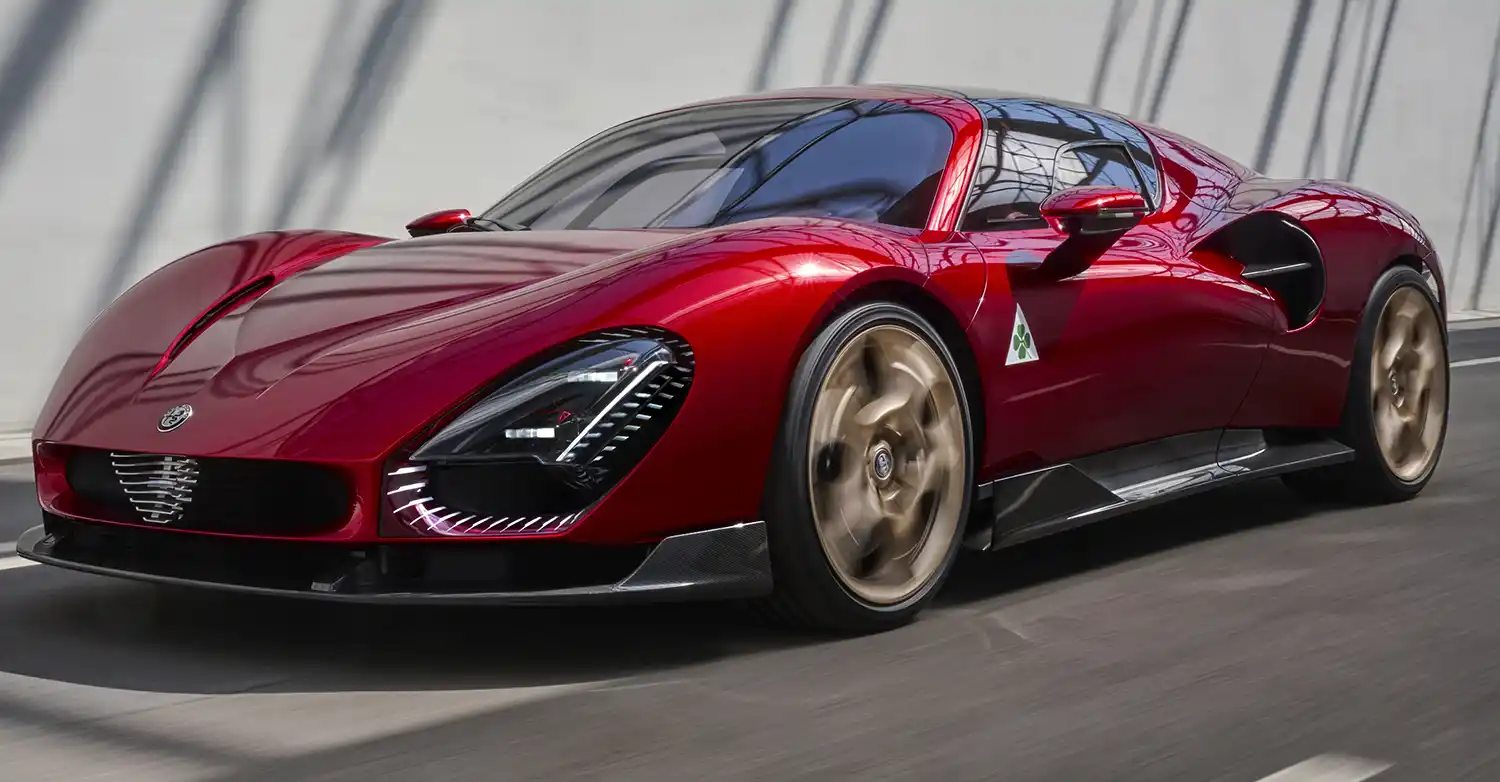
“With the new 33 Stradale, we wanted to create something that lived up to our past,” said Jean-Philippe Imparato, CEO of Alfa Romeo. “This is the brand’s first fuoriserie since 1969—and it won’t be the last.”
Design: Sculptural Beauty Meets Functional Form
Produced by the Alfa Romeo Centro Stile, the 33 Stradale captures the essential beauty of its ancestor while introducing modern aerodynamic and technological refinements. From its butterfly doors and iconic shield grille to the wraparound glass roof and rear V-graphic with round taillights, every line of the car is meticulously sculpted.
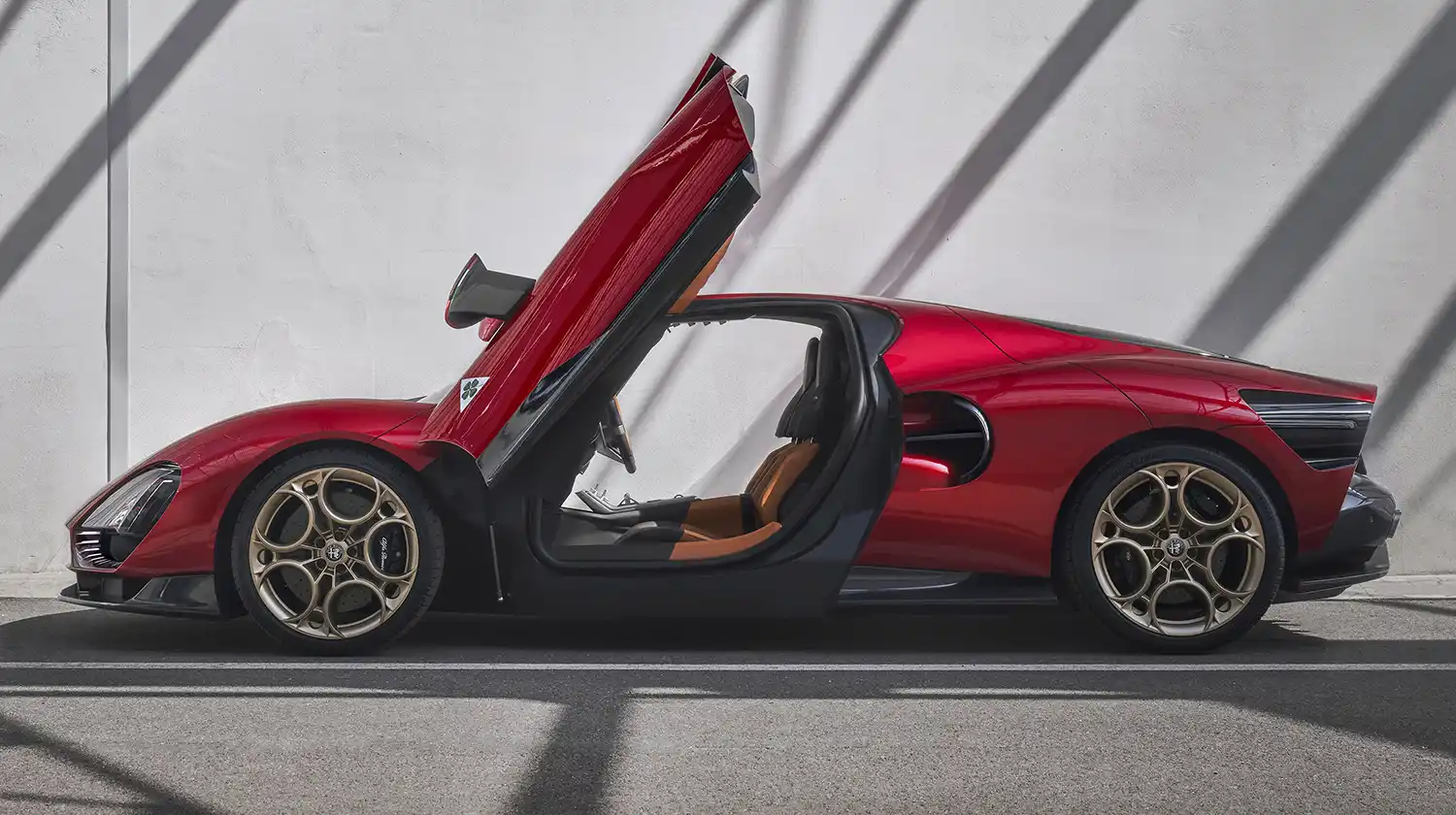
The profile is sleek and dynamic, while the rear’s muscular, truncated tail hints at brutal power beneath its elegance. Achieving a drag coefficient of just 0.375 (with zero lift), the body delivers aesthetic purity without relying on active aero elements.
Two design themes are offered: Tributo and Alfa Corse—each showcasing minimalist interiors with aviation-inspired instrument panels, telescope-style 3D displays, and Alcantara-trimmed wraparound seats. The steering wheel is button-free, offering an unfiltered connection between driver and machine.
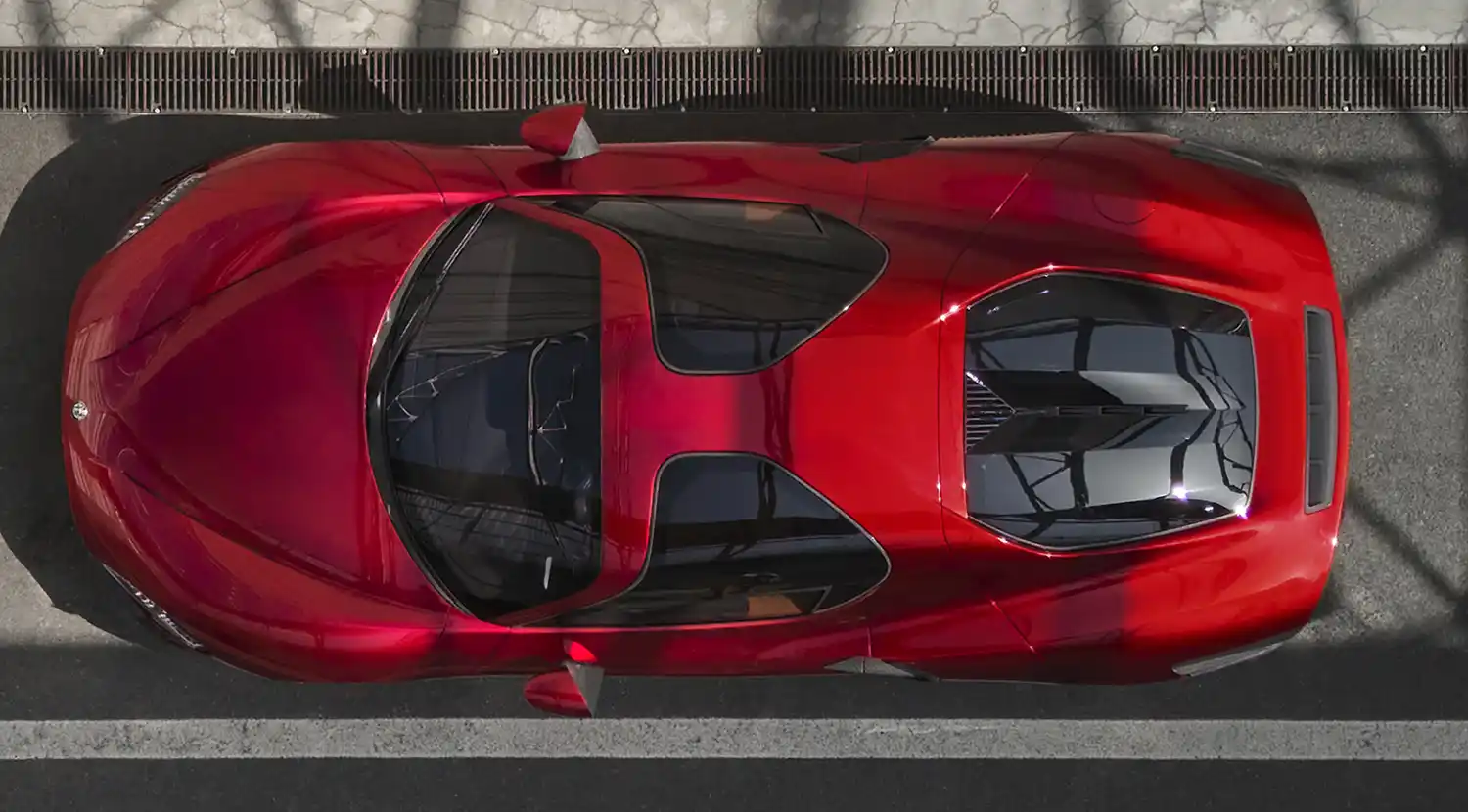
Performance: Emotion Meets Precision
The 33 Stradale is available in two heart-pounding configurations. The internal combustion model is powered by a twin-turbo V6 delivering over 620 hp, while an all-electric version offers over 750 hp and up to 450 km of WLTP range. Both variants accelerate from 0 to 100 km/h in under 3 seconds and reach a top speed of 333 km/h (206 mph).
Refinement comes via double-arm active suspension, an eight-speed DCT gearbox, and Brembo carbon-ceramic brakes capable of stopping from 100 km/h in under 33 meters. A front axle lift system aids clearance at low speeds, and the Drive Mode Selector enables ‘Strada’ and ‘Pista’ settings—tailored for road or track, including a launch control function.
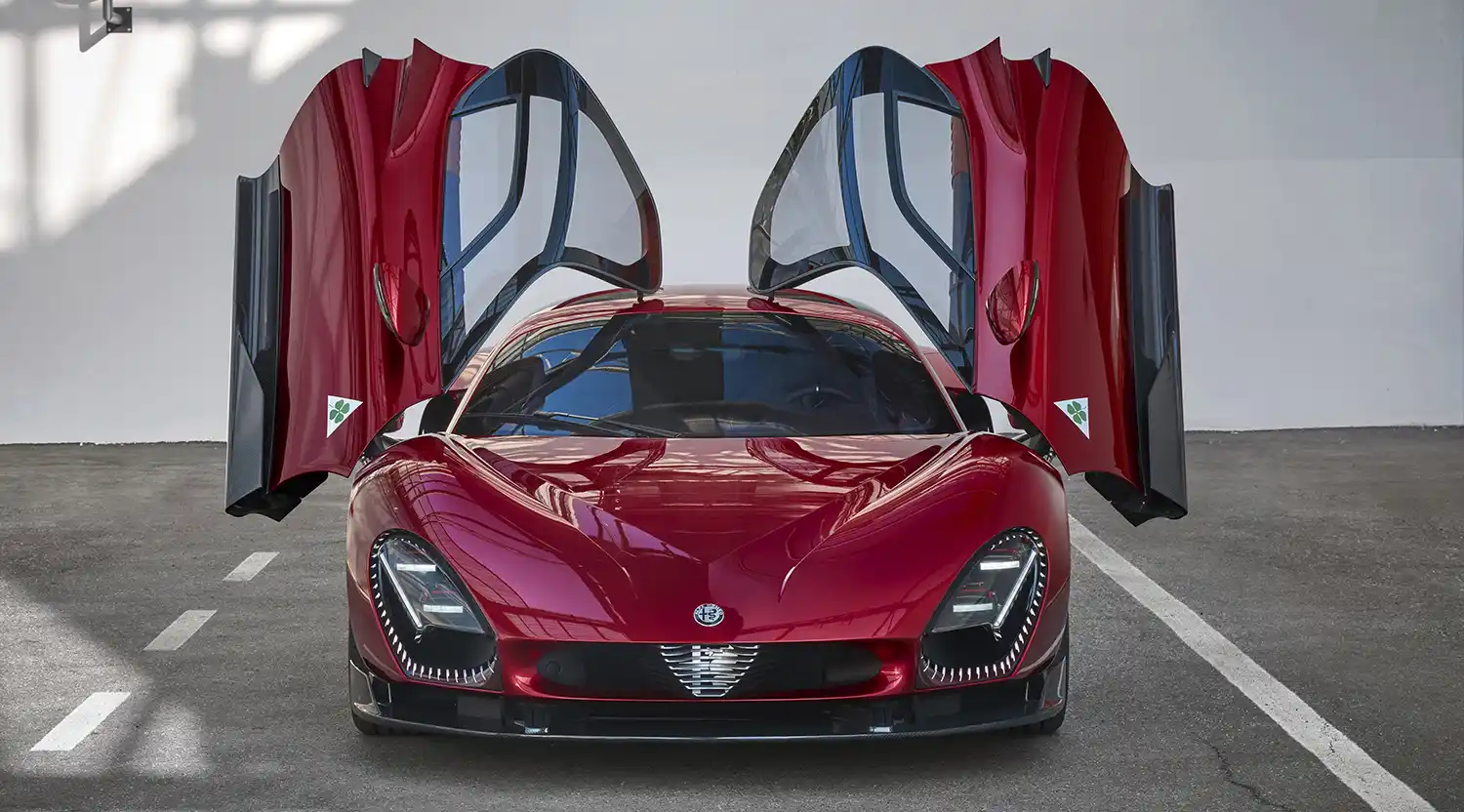
Built on an aluminum H-frame with a carbon-fiber monocoque, the 33 Stradale balances strength and lightweight engineering. Its roof and window surrounds are carbon fiber, while the rear window is made of polycarbonate to further reduce mass.
The Bottega Experience: Personalization Redefined
The 33 Stradale is more than a car—it’s a commission. Alfa Romeo created “La Bottega,” a bespoke workshop where each buyer co-created their car, starting with private meetings at the 2022 Monza Grand Prix. Every design, from air intakes to wheels and even VINs, was uniquely configured. Notably, the chassis number is partially selected by the client, laser-etched onto the car’s central tunnel.
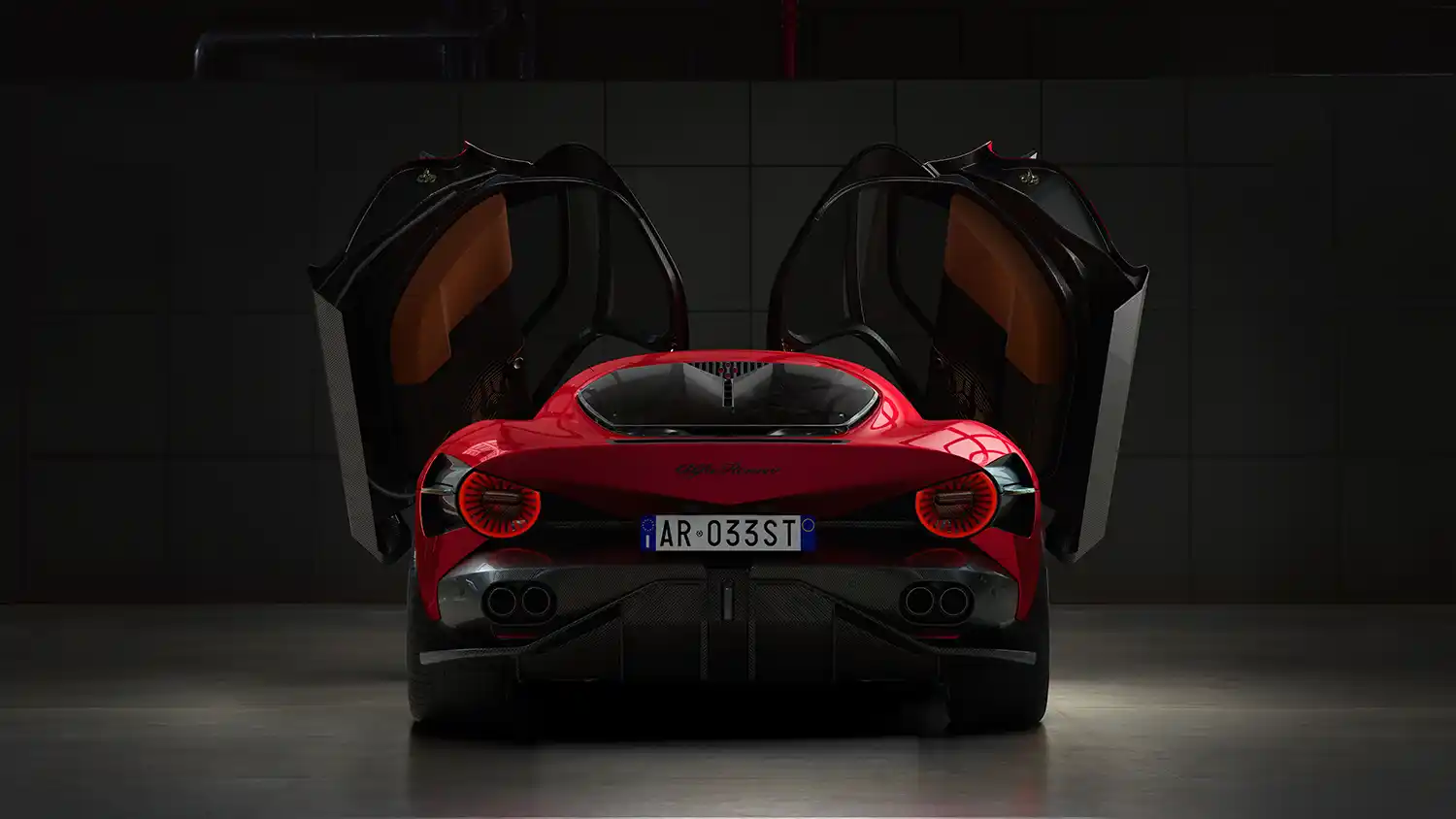
Construction is entrusted to Carrozzeria Touring Superleggera, ensuring uncompromising craftsmanship with obsessive attention to detail.
The Roots of a Legend
The original 1967 33 Stradale was born from Alfa Romeo’s return to racing and was based on the victorious Tipo 33 prototype. Designed by Franco Scaglione, only 18 units were produced between 1967 and 1969. Six of its chassis formed the basis for some of the most visionary concept cars of the era, including the Carabo, Iguana, and Navajo.
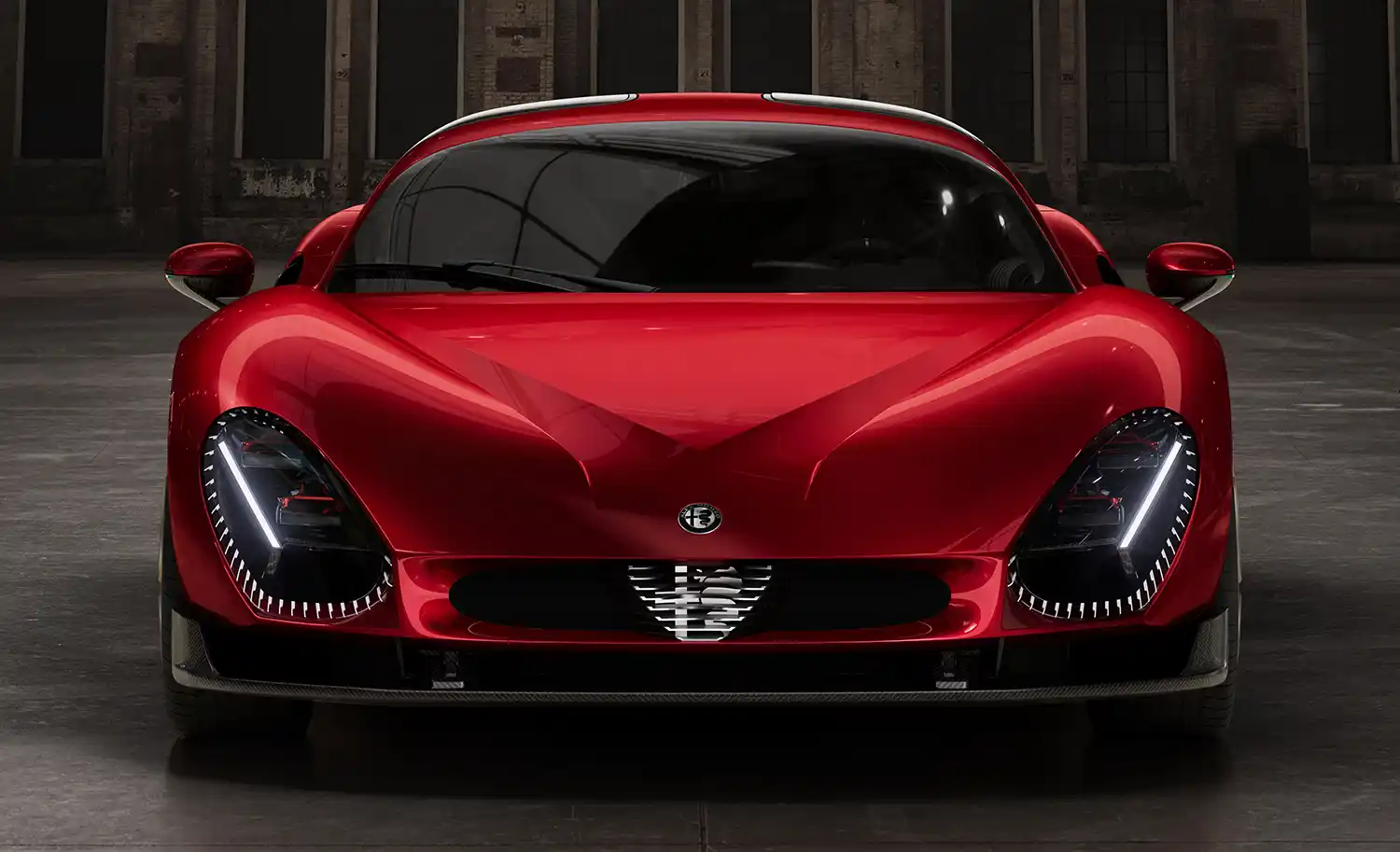
Today, the 33 Stradale honors that legacy—not as a retro pastiche, but as a contemporary celebration of style, speed, and the soulful emotion that only Alfa Romeo can deliver.
Disclaimer: This article is based on information provided by Alfa Romeo and publicly available. Specifications and availability are subject to change by the manufacturer. Alfa Romeo reserves the right to modify features and design without prior notice.
